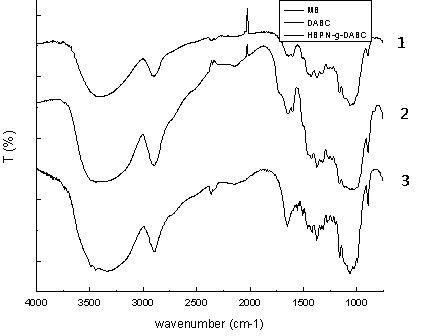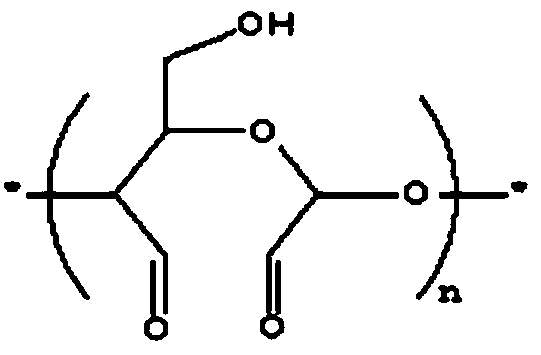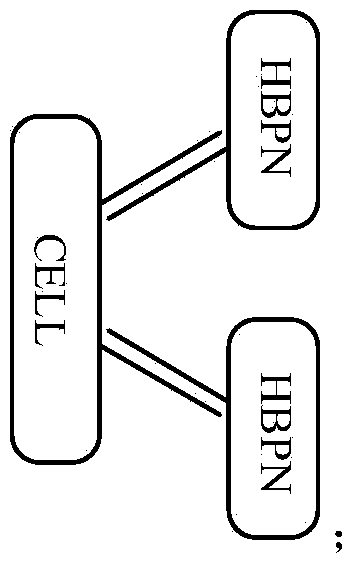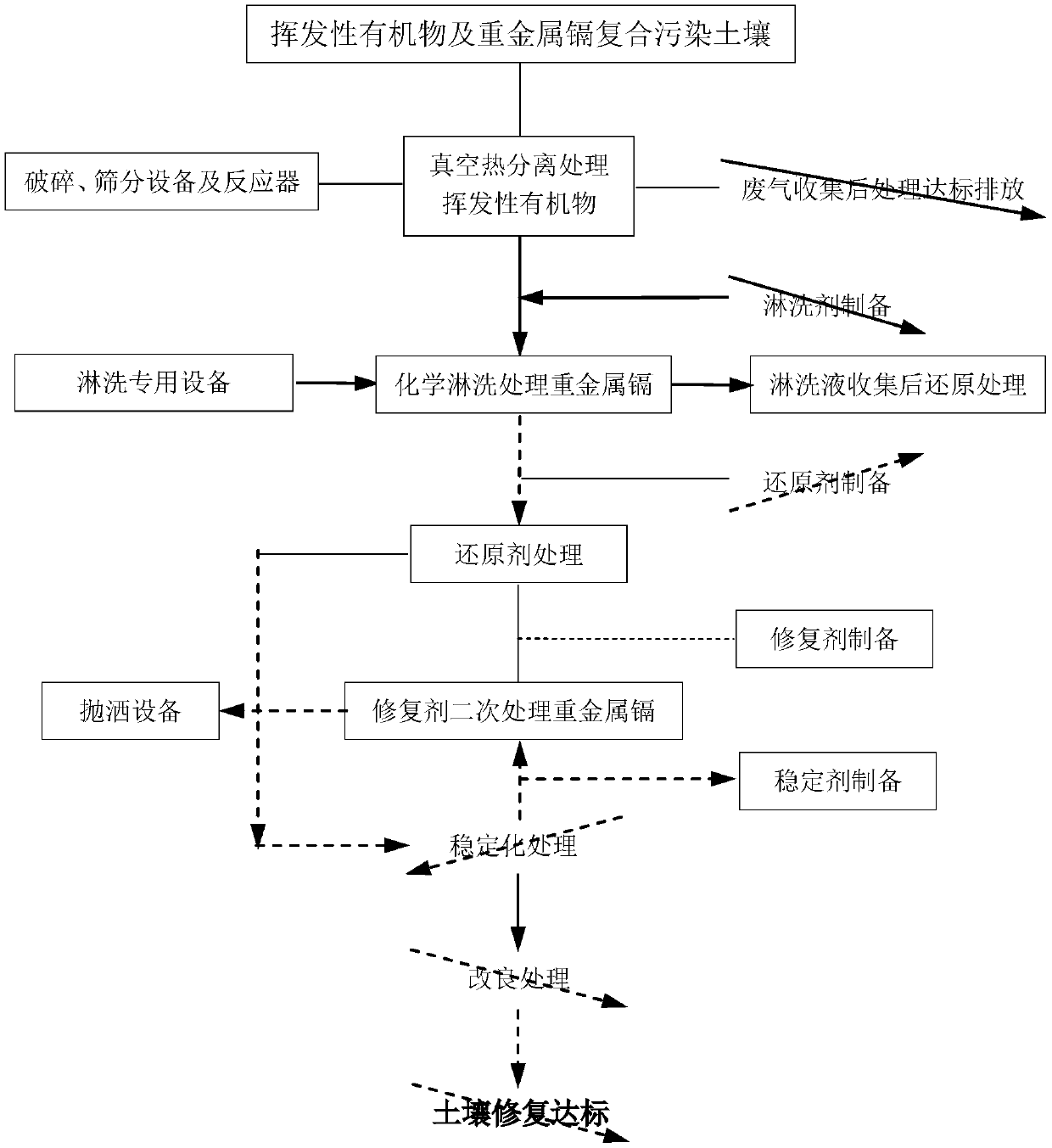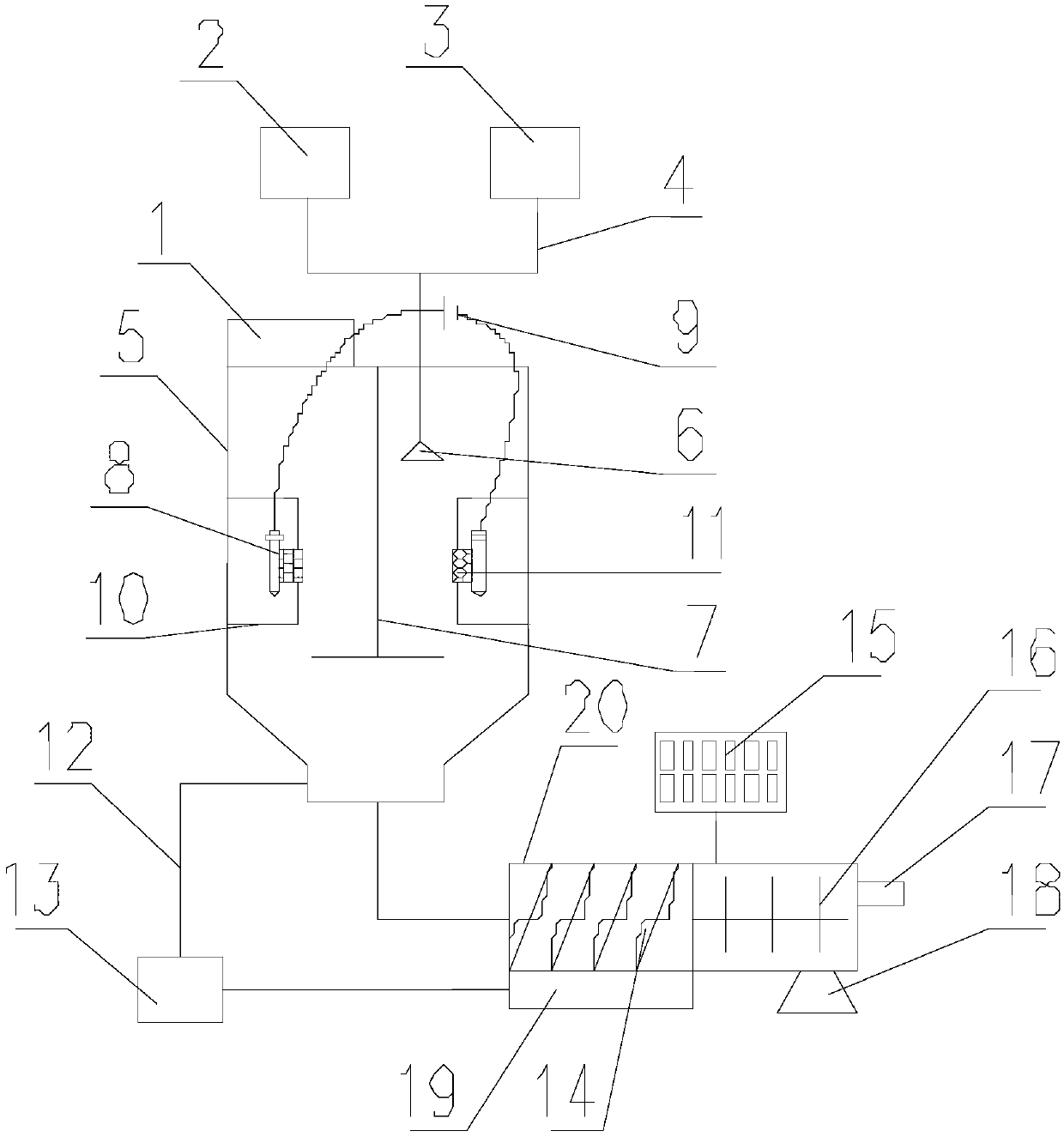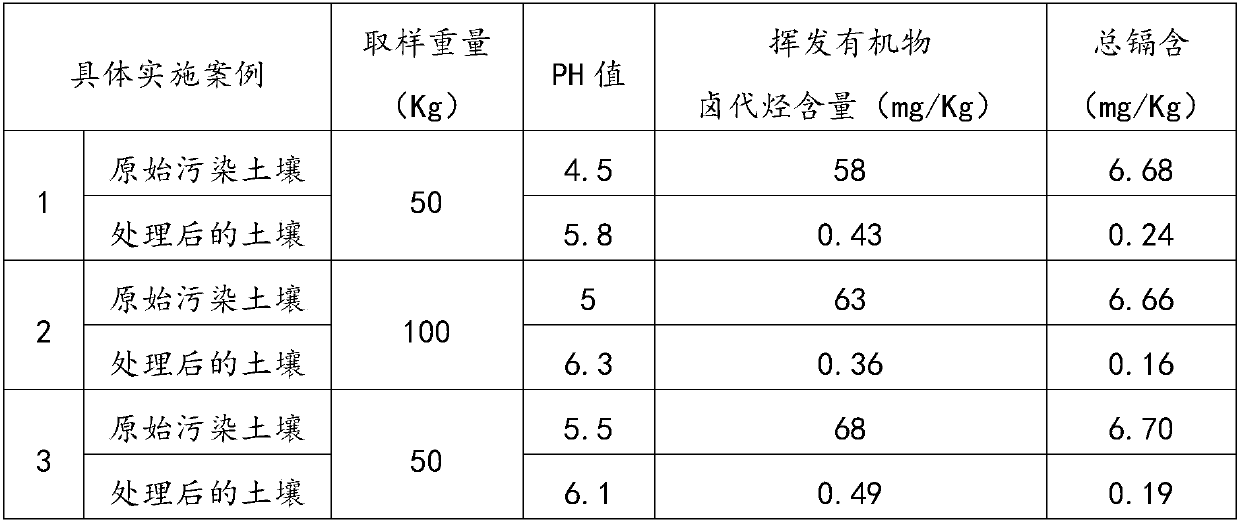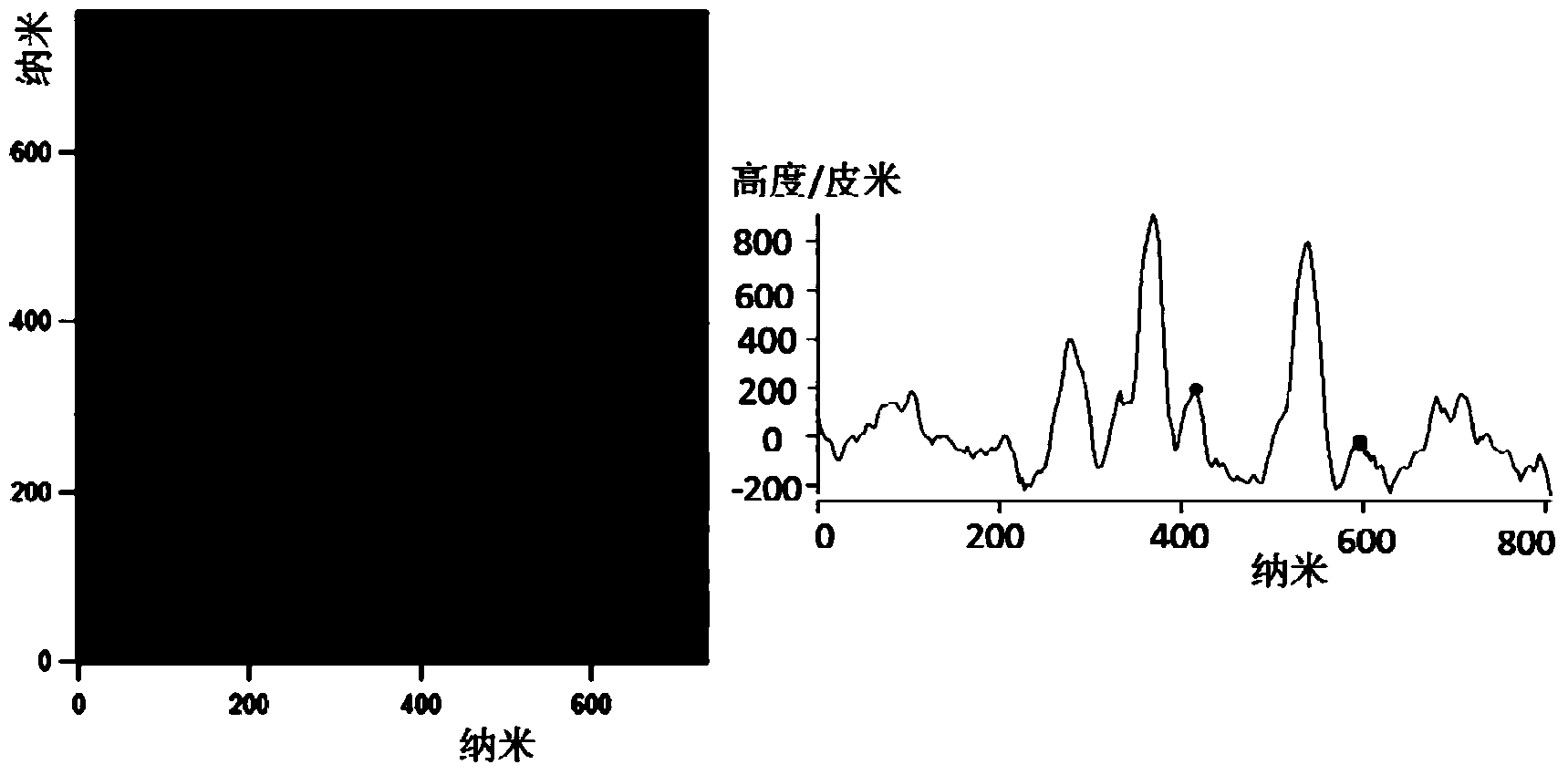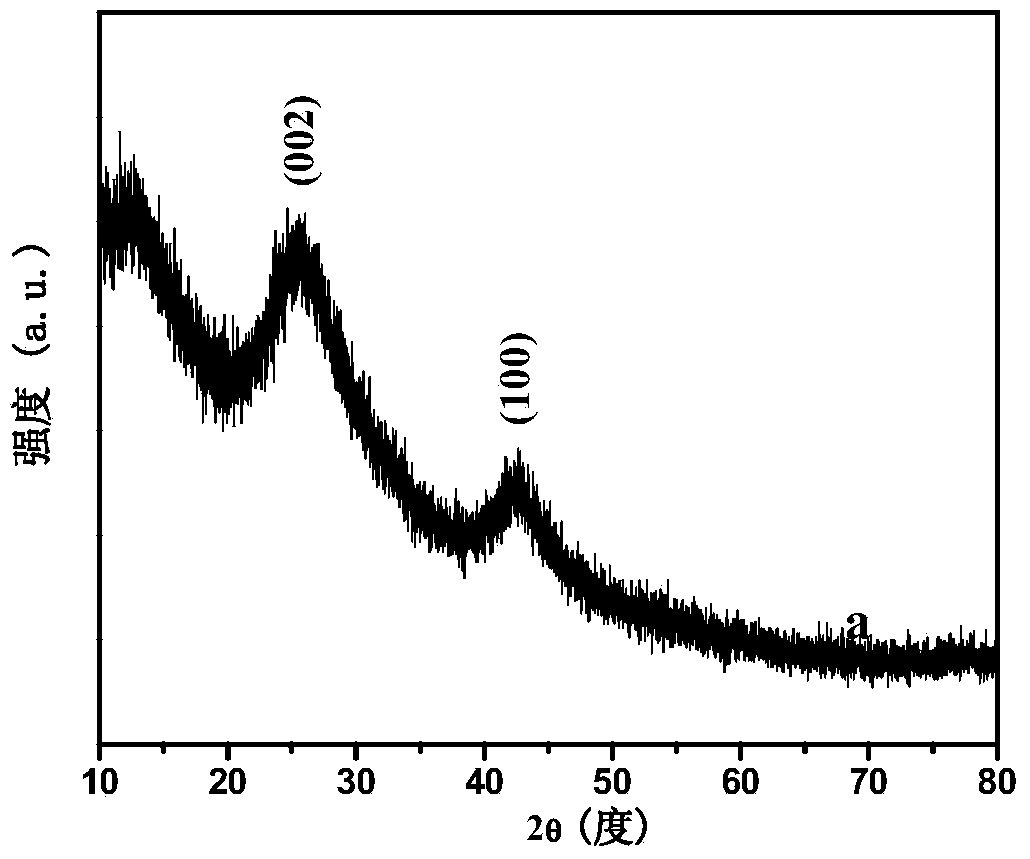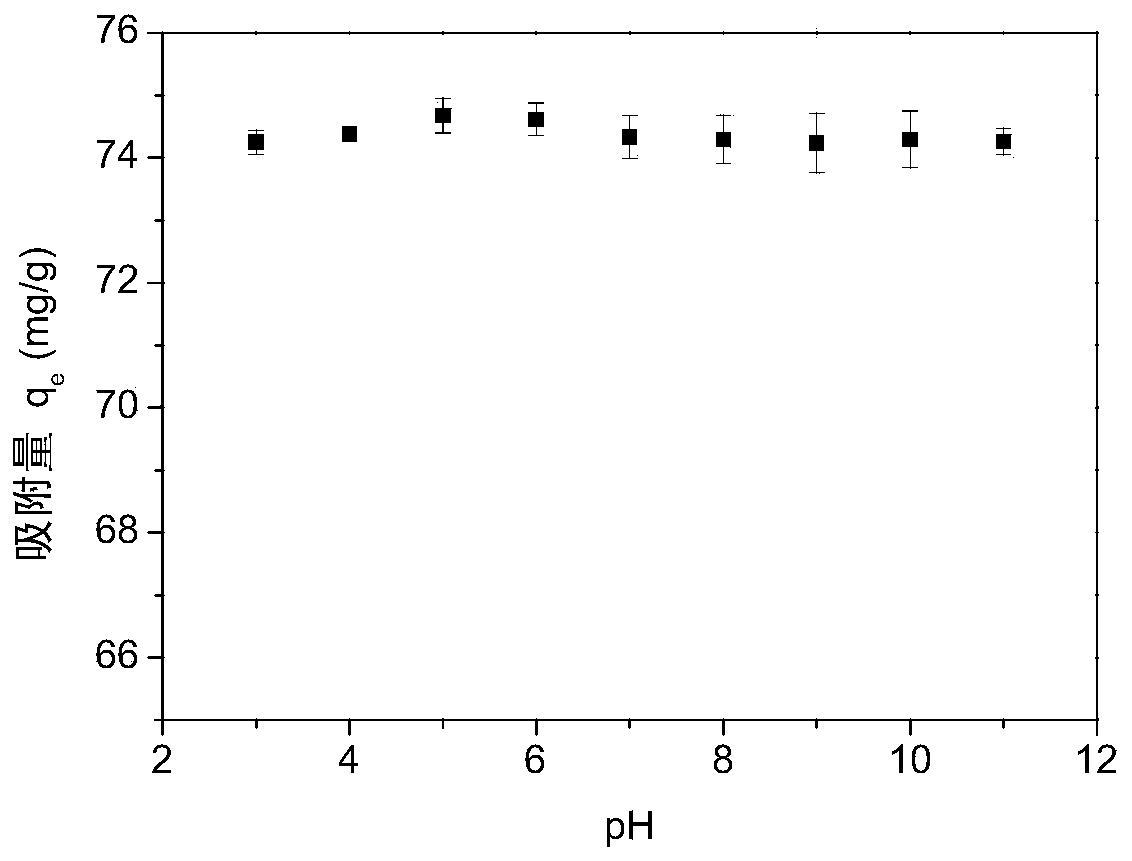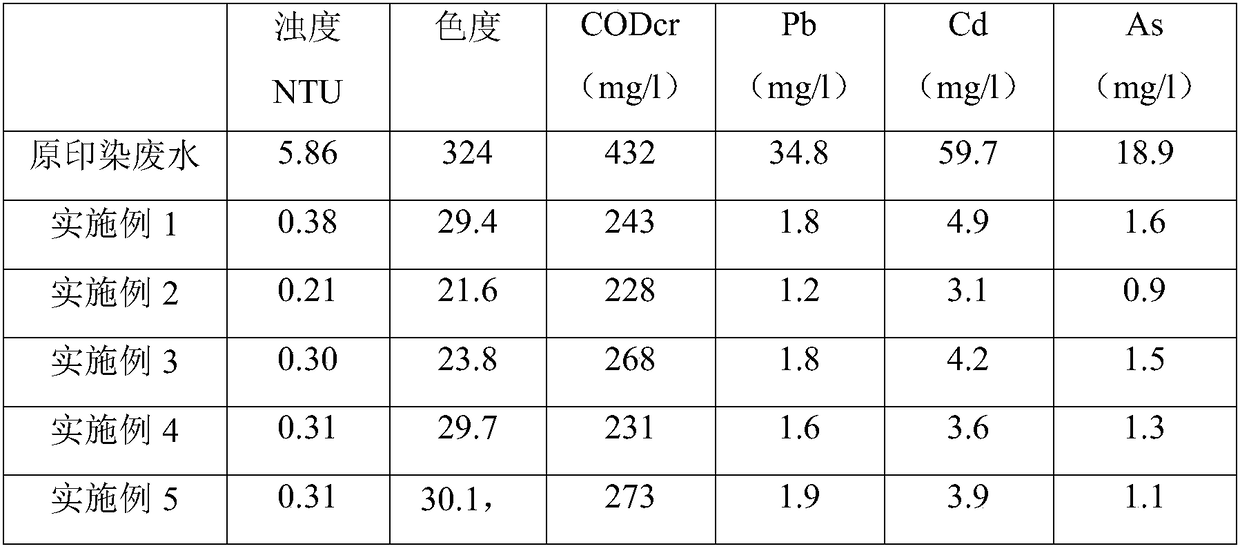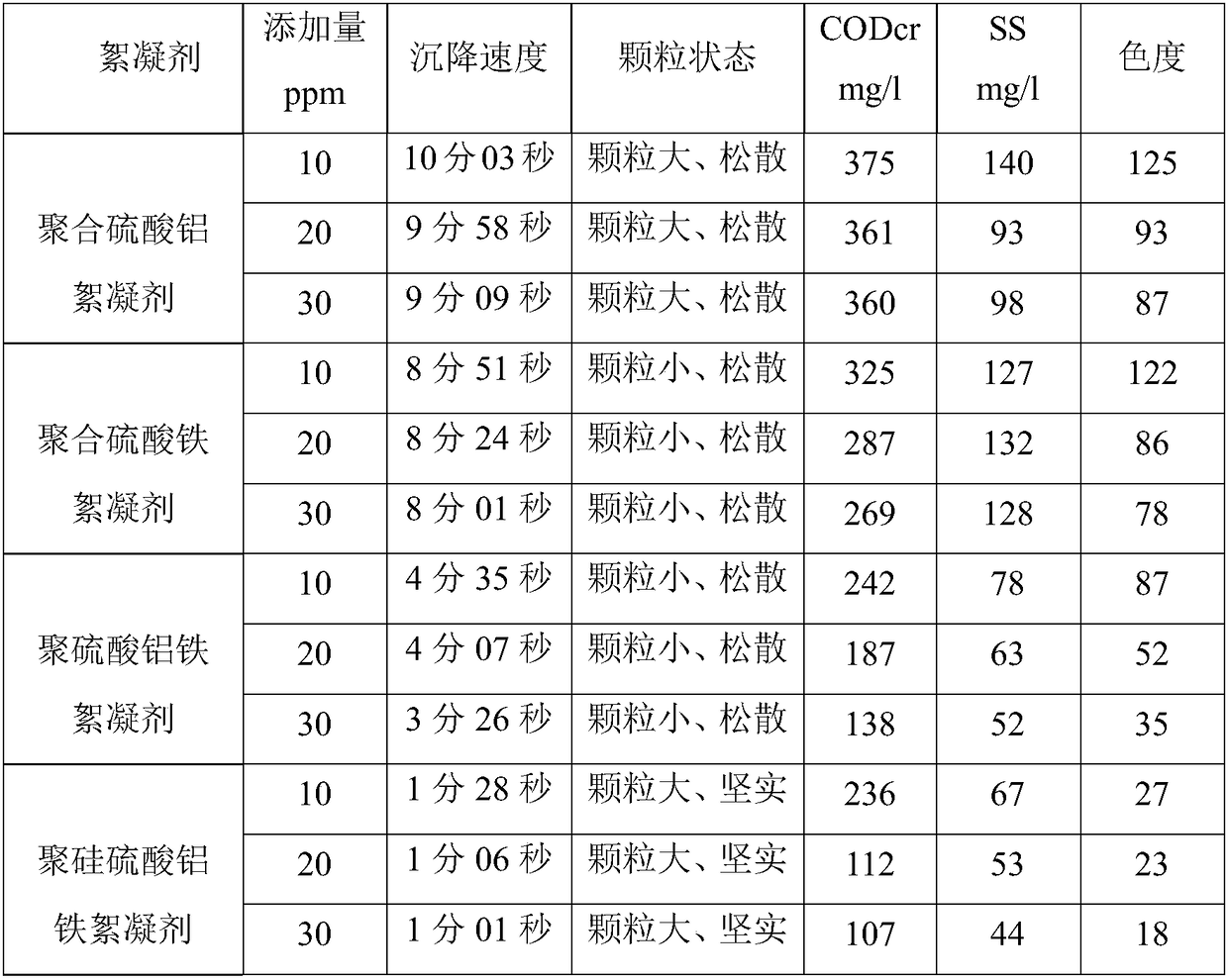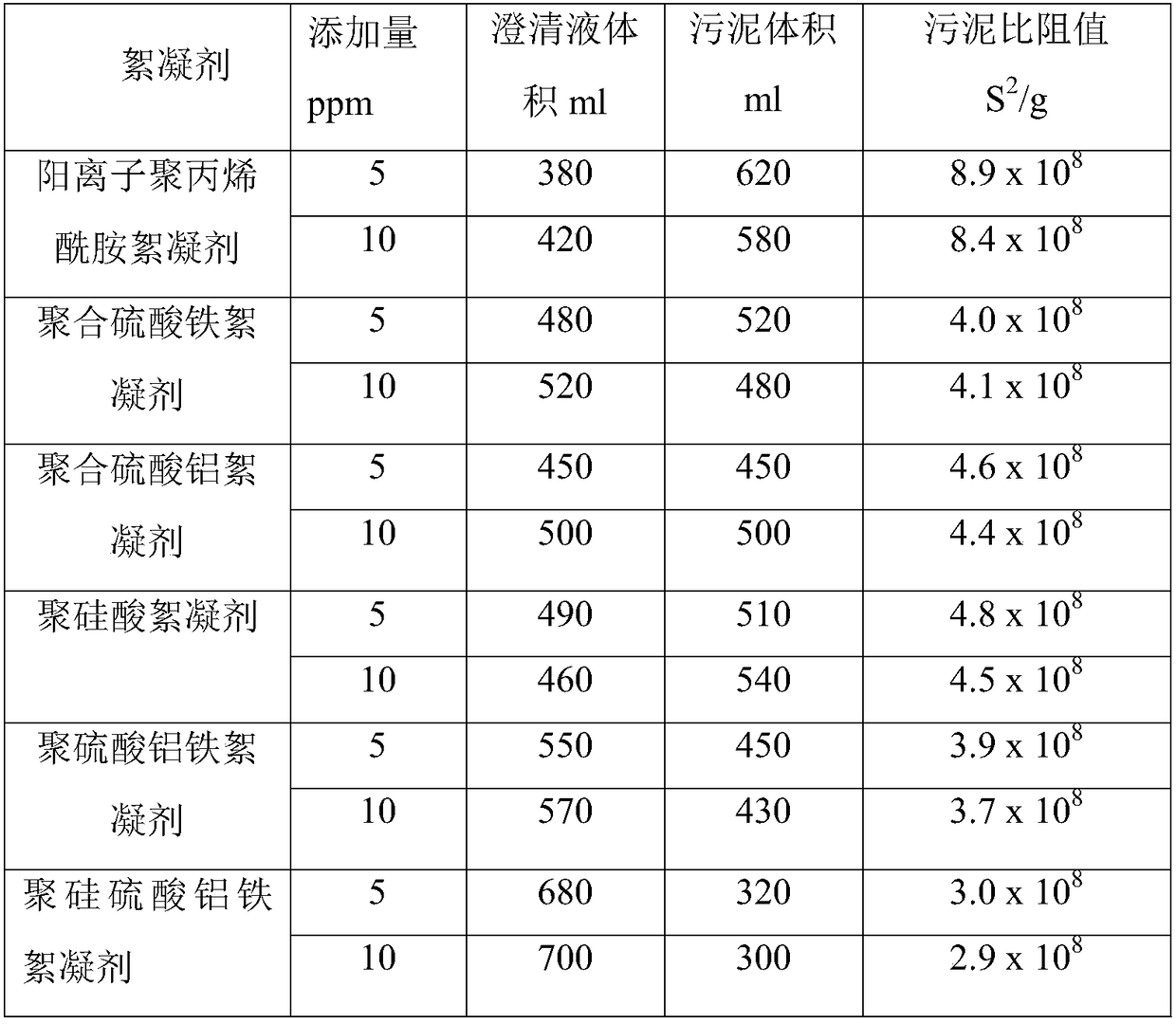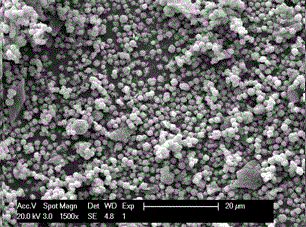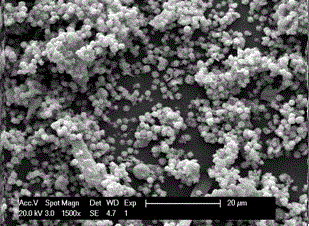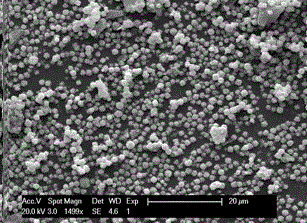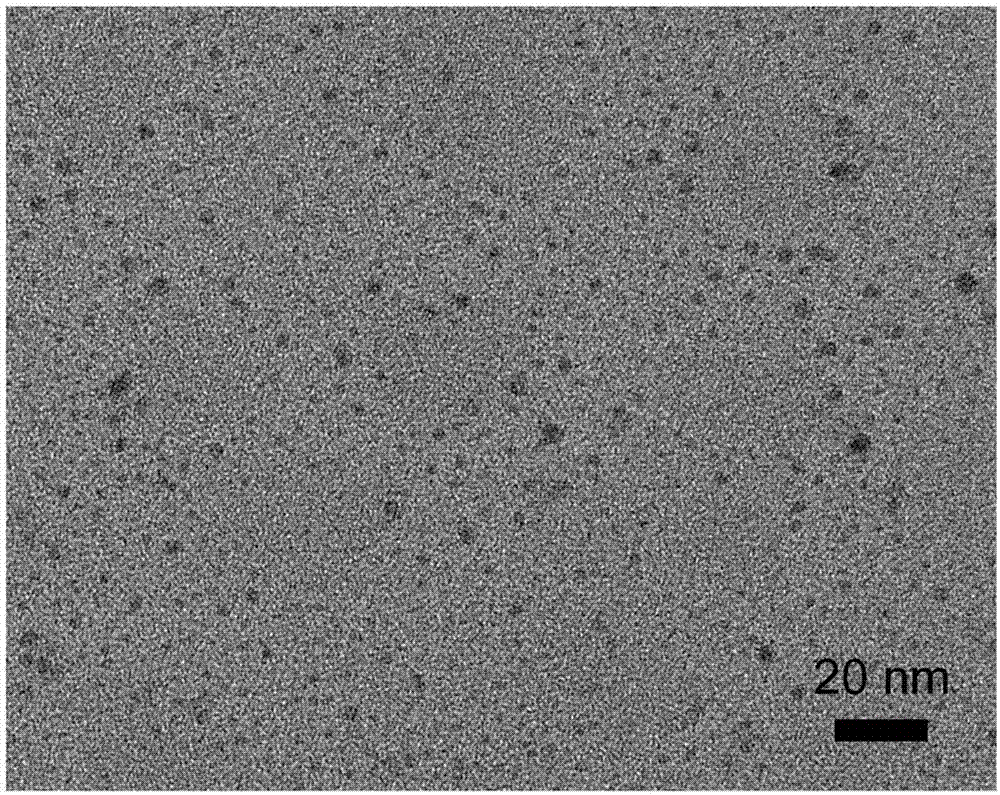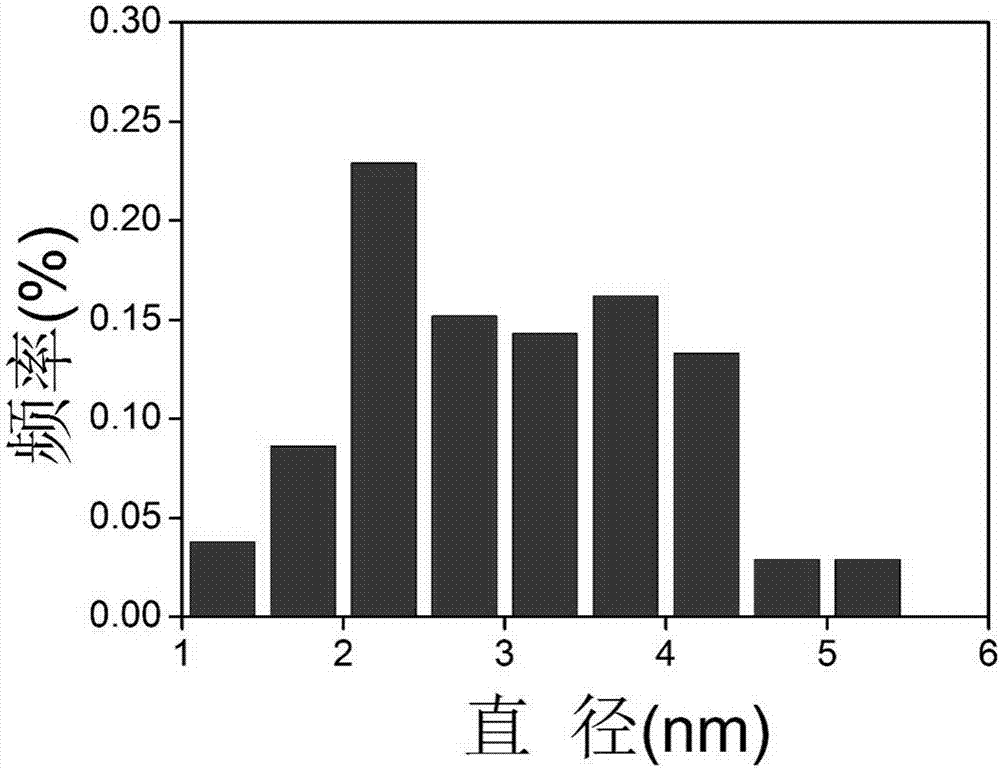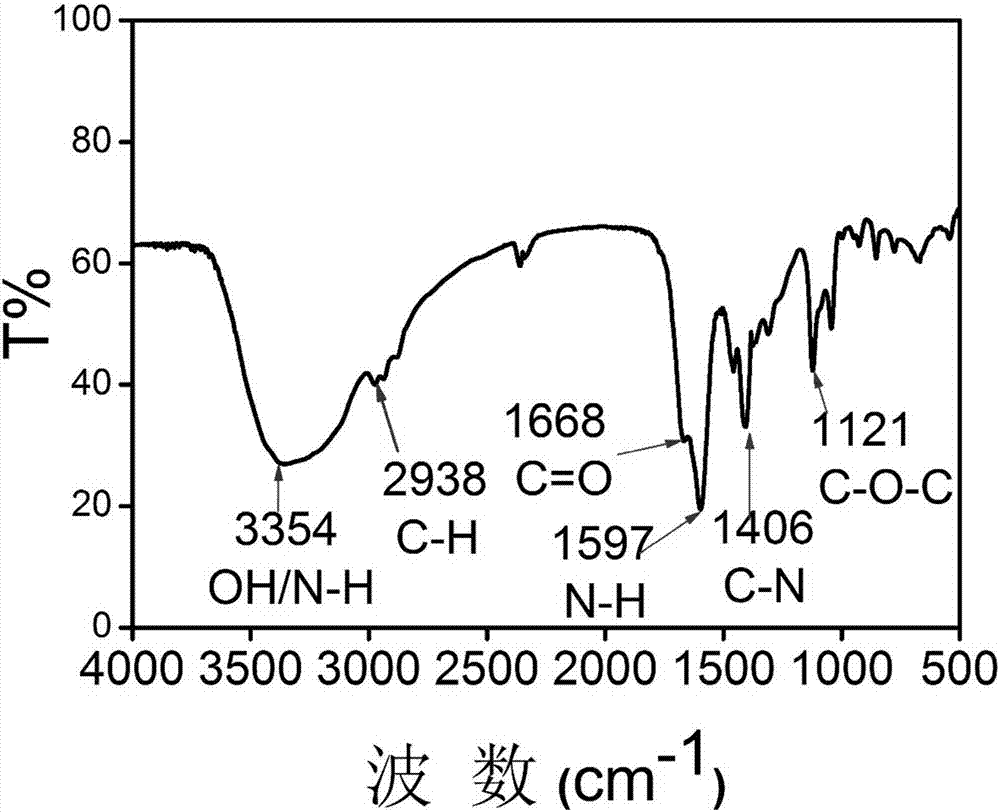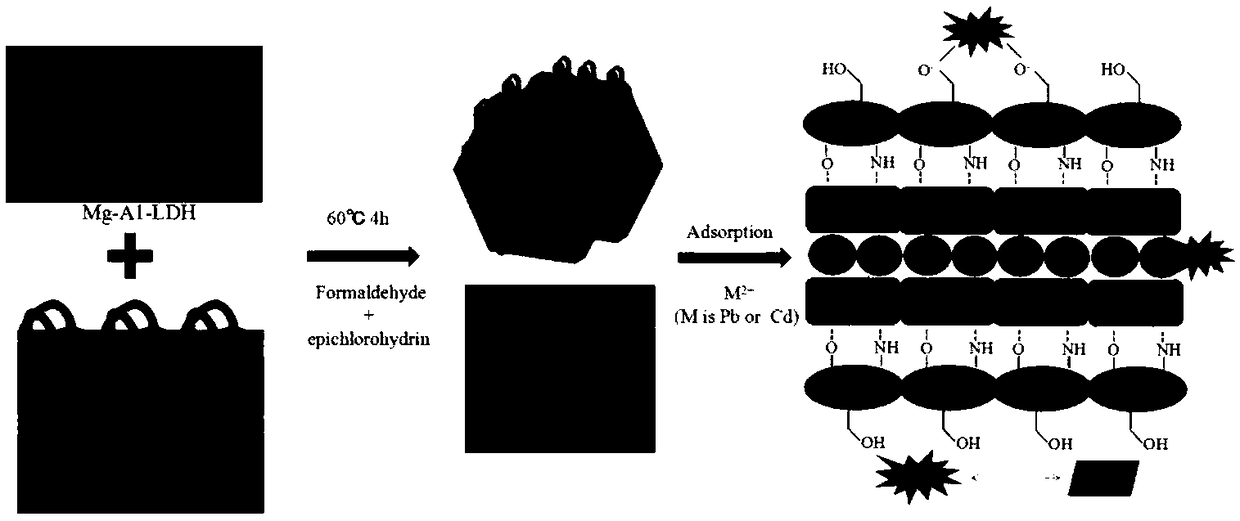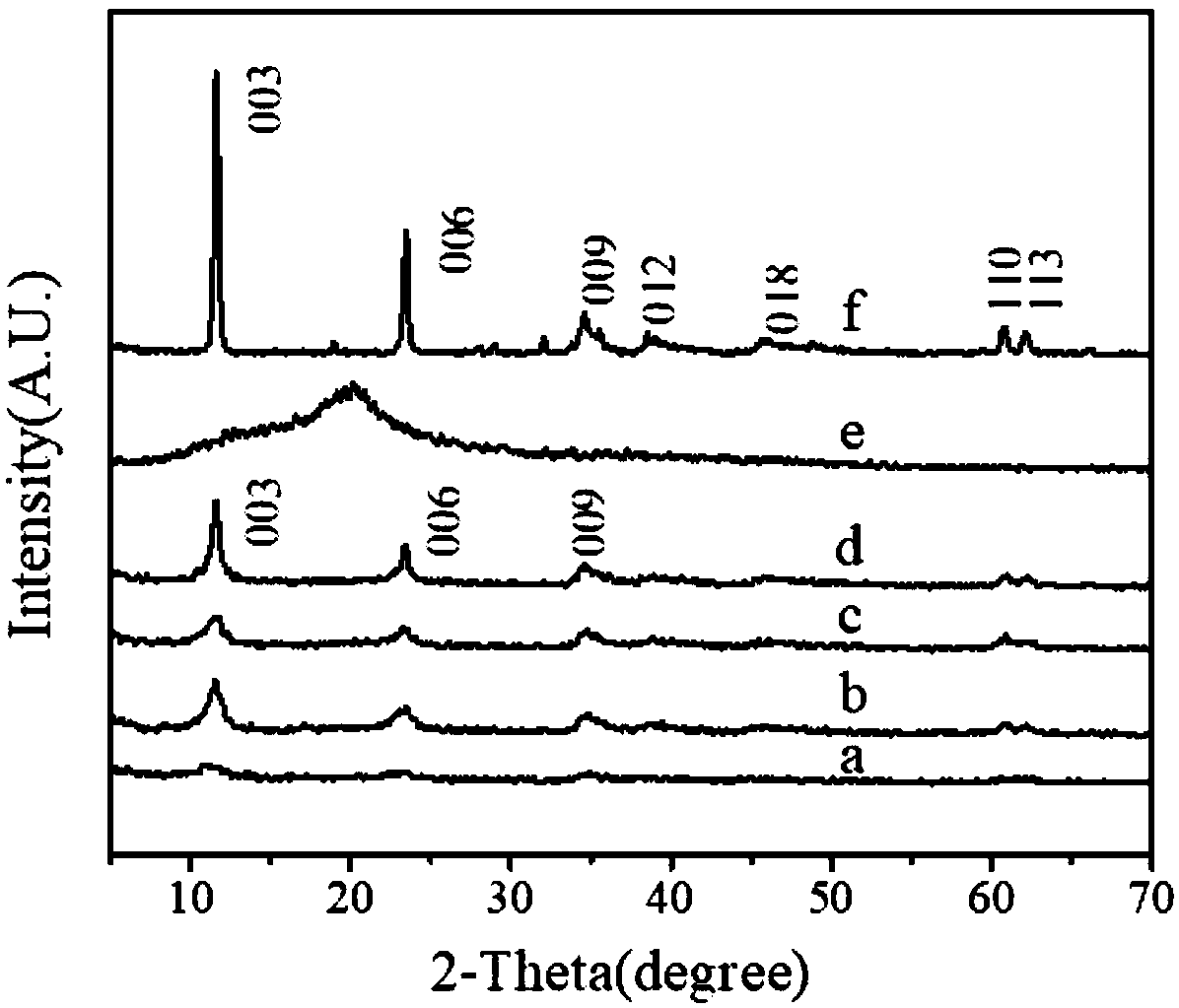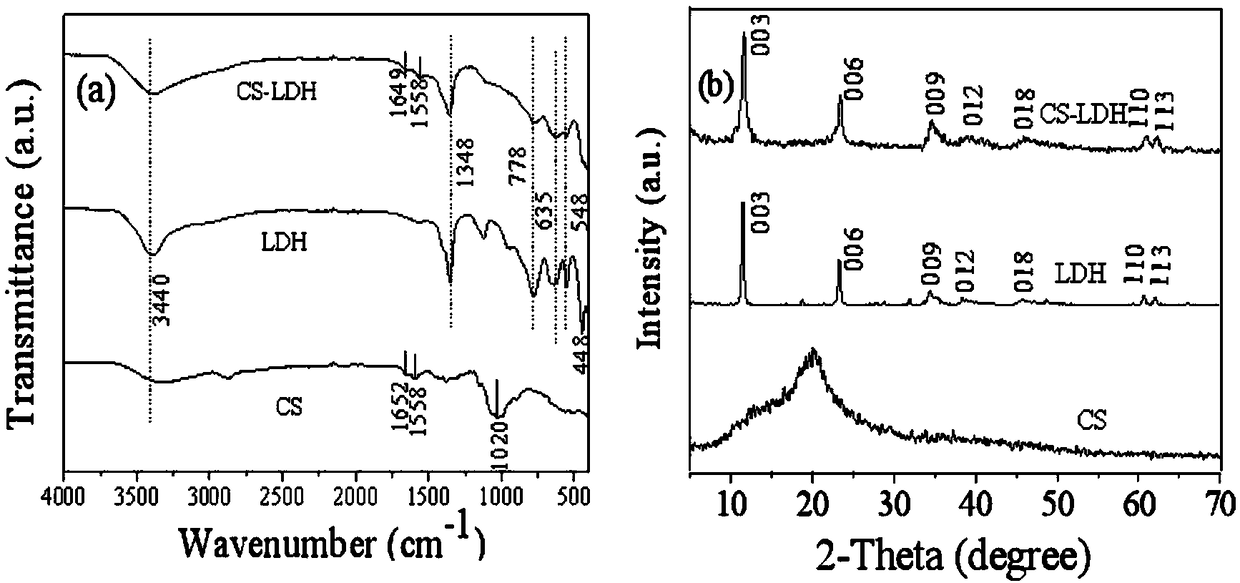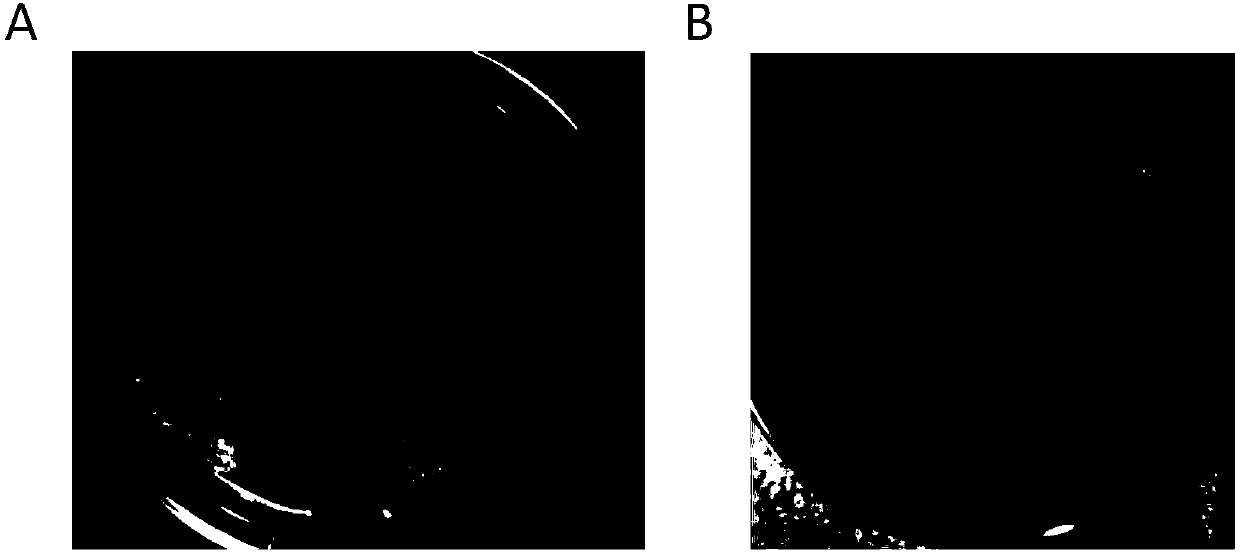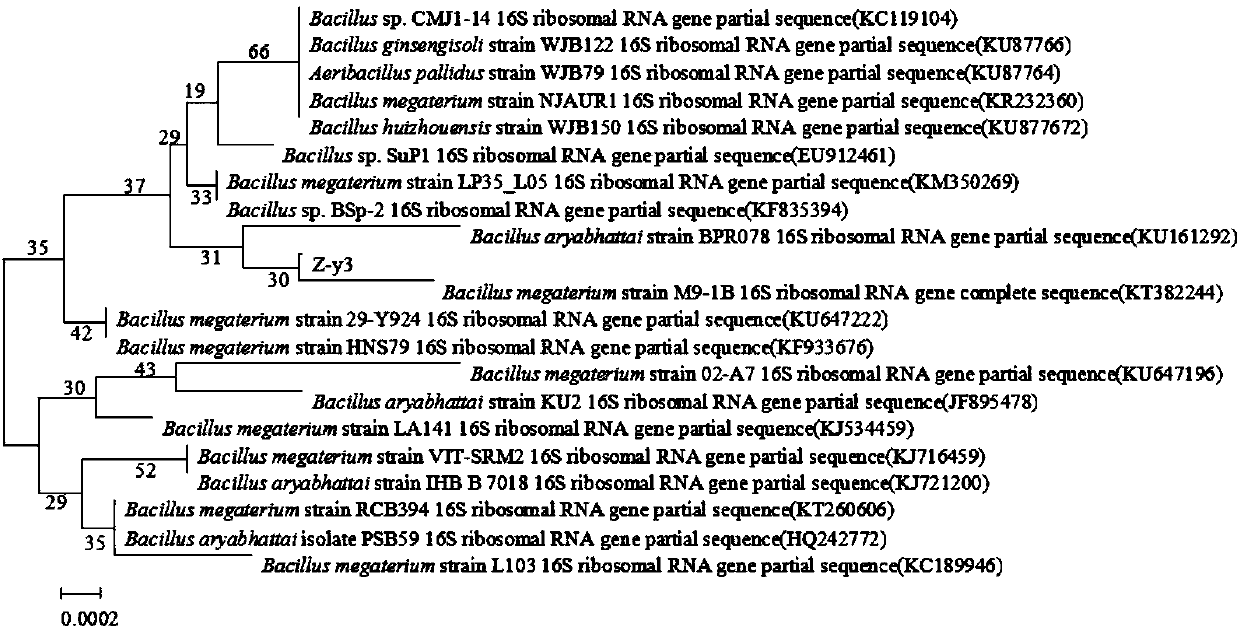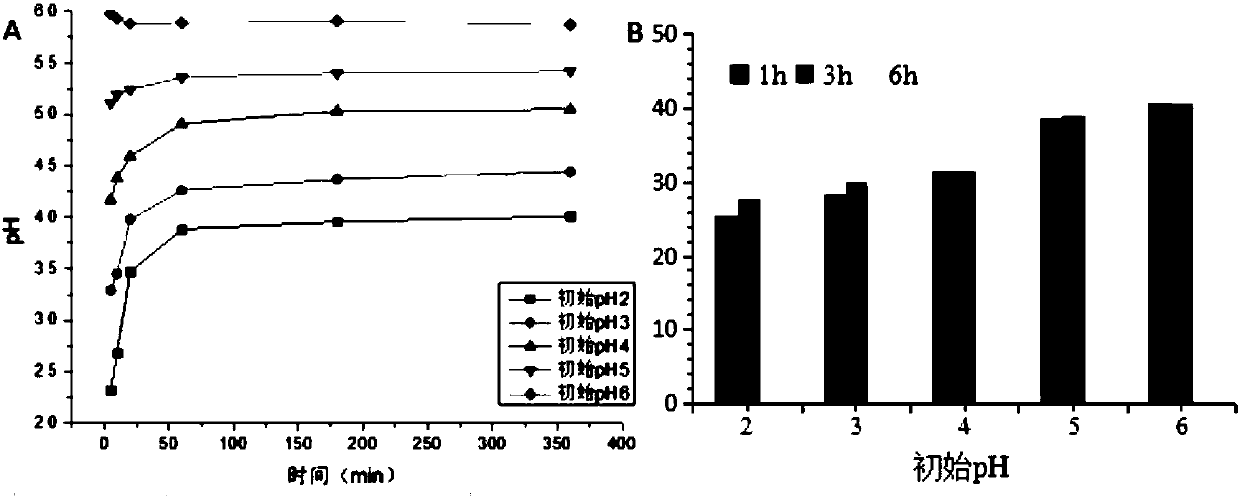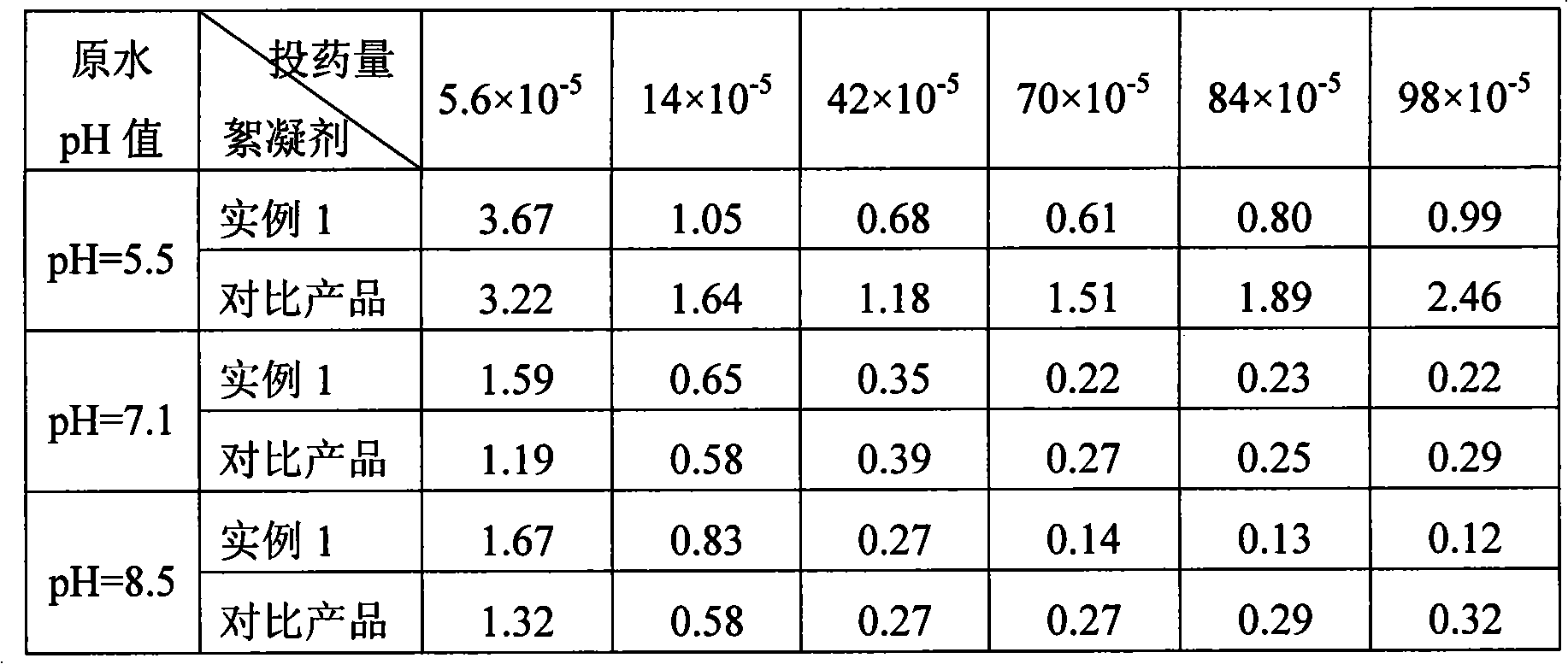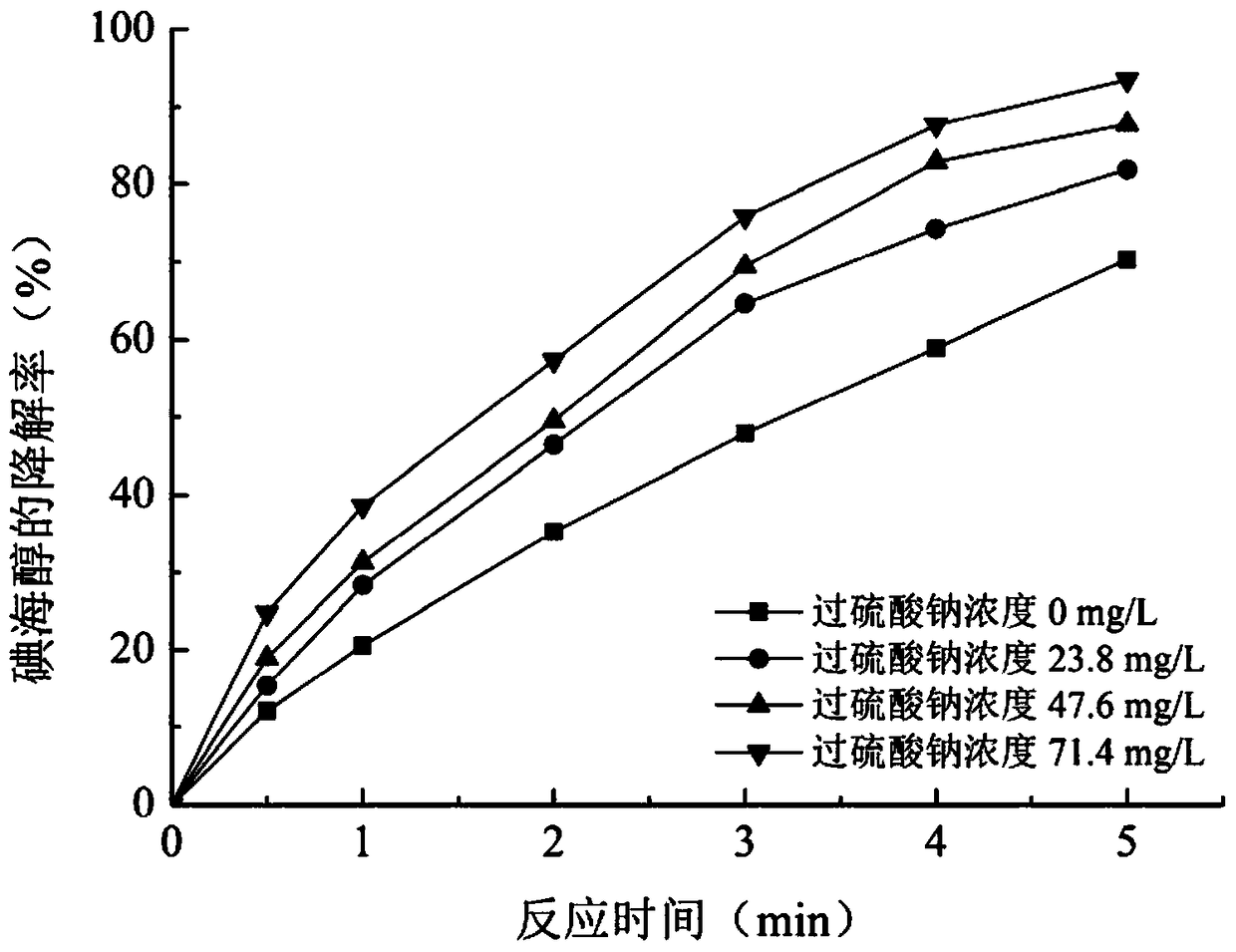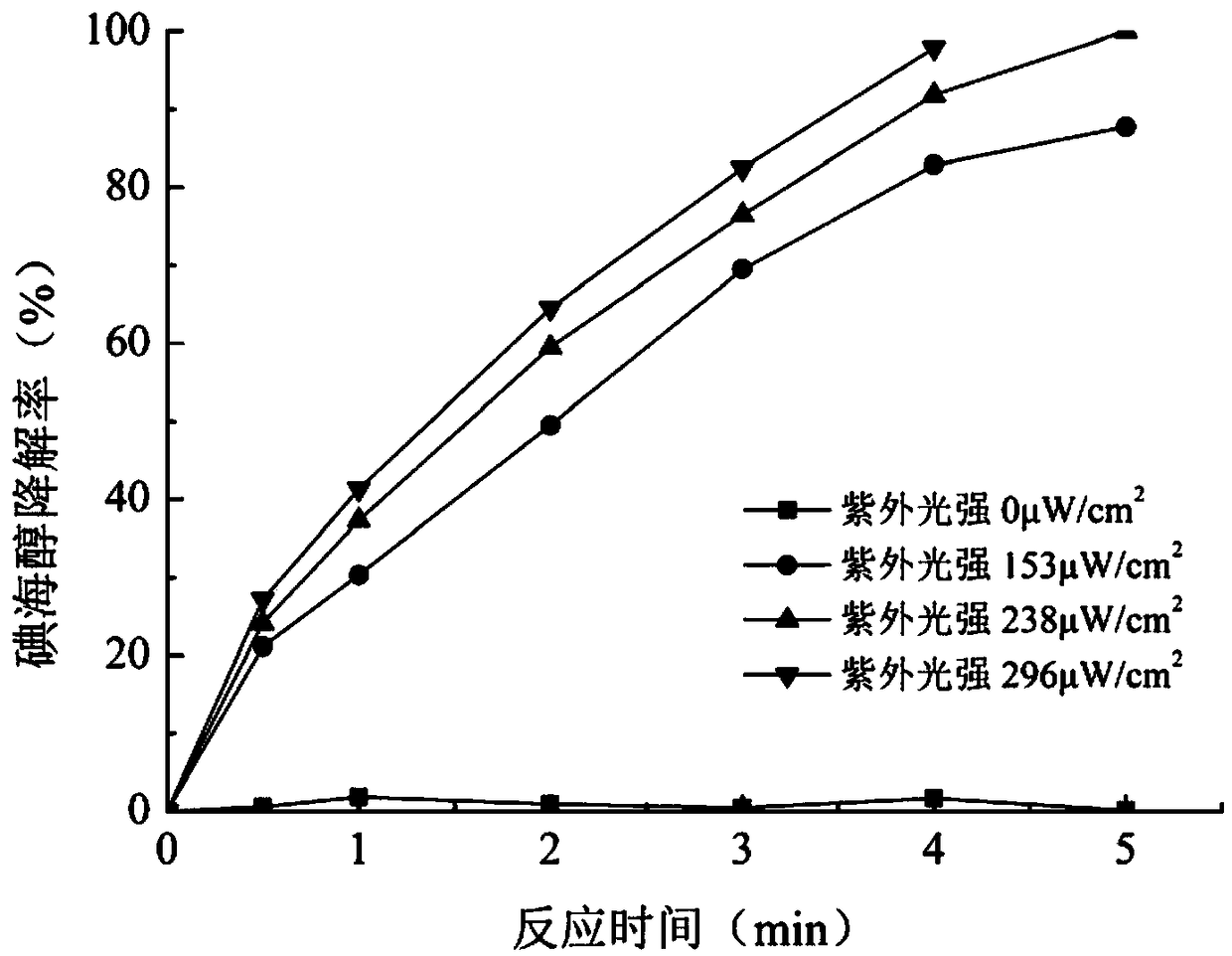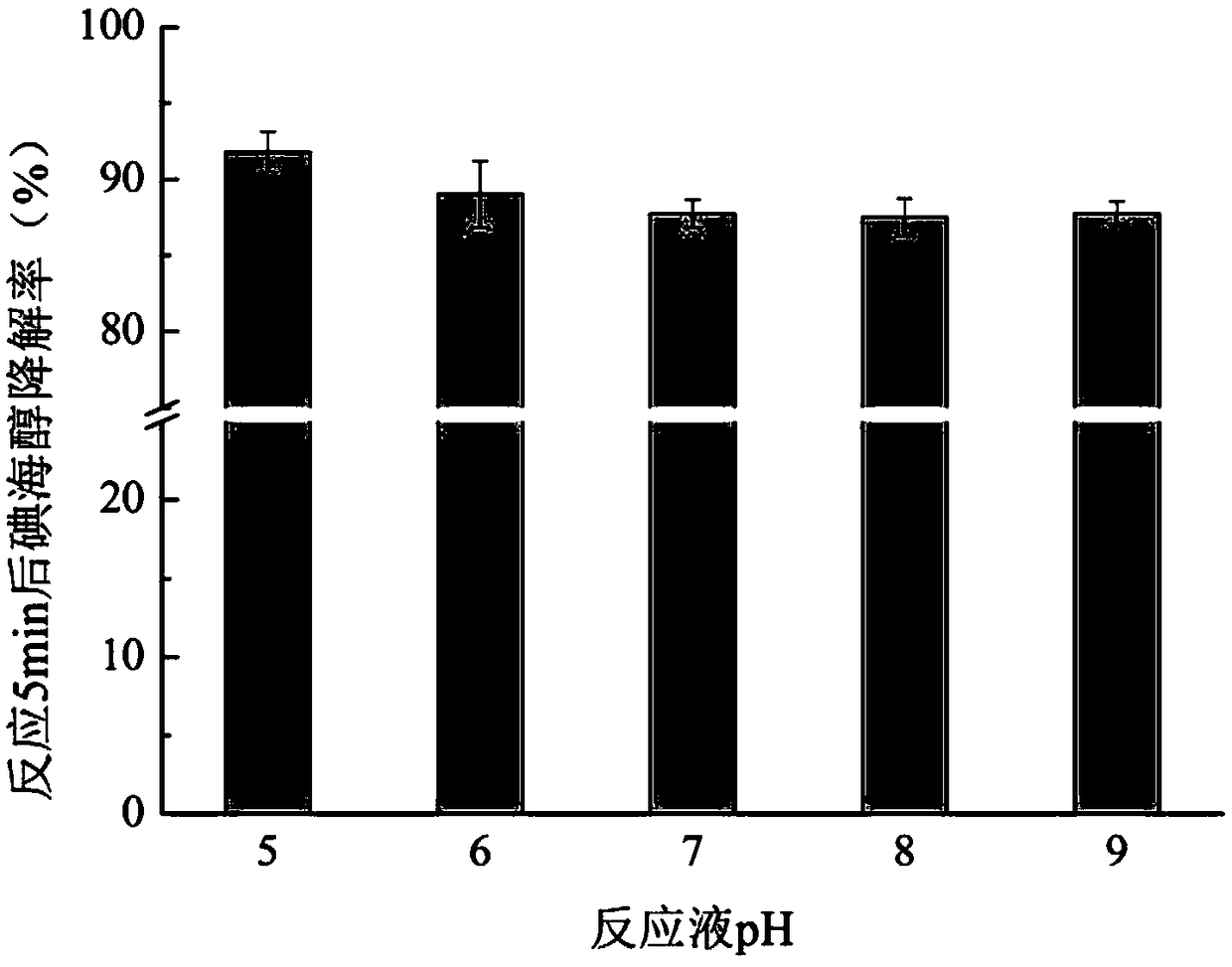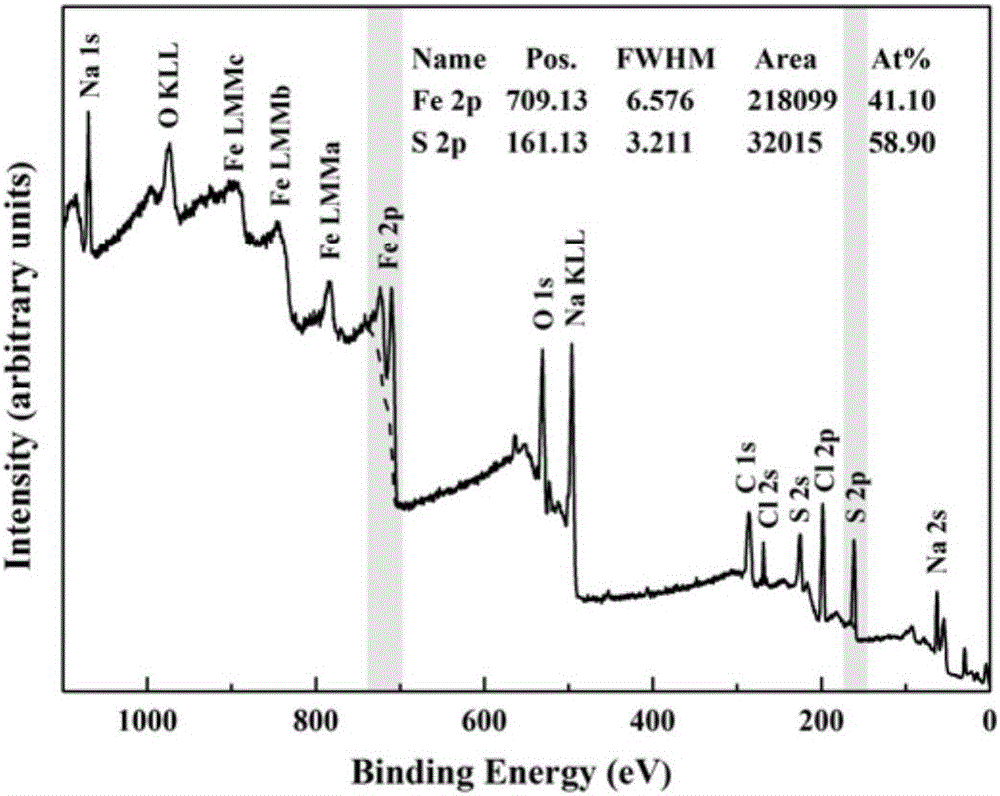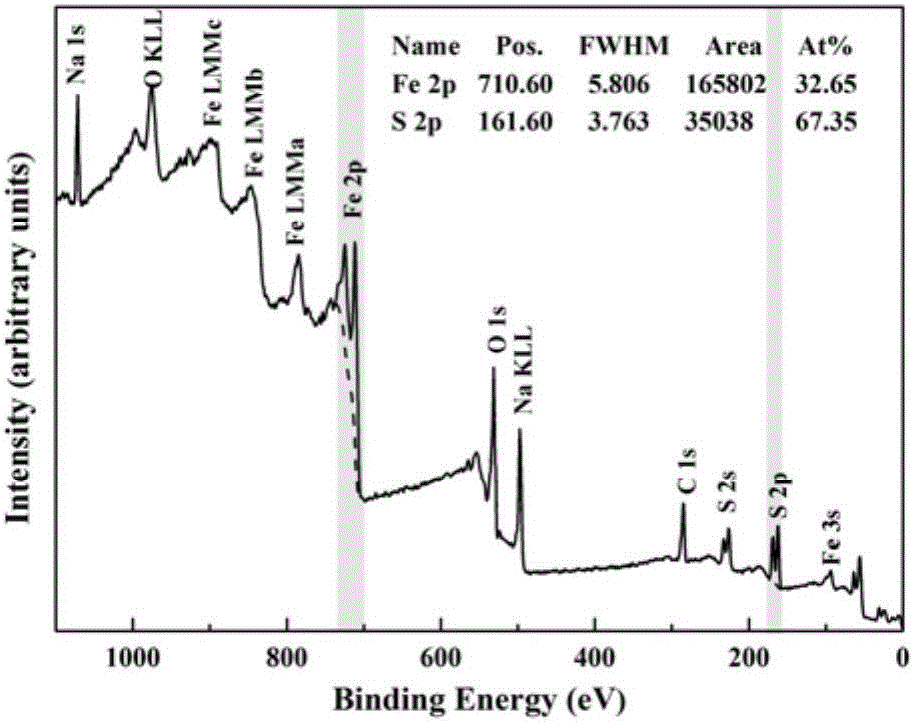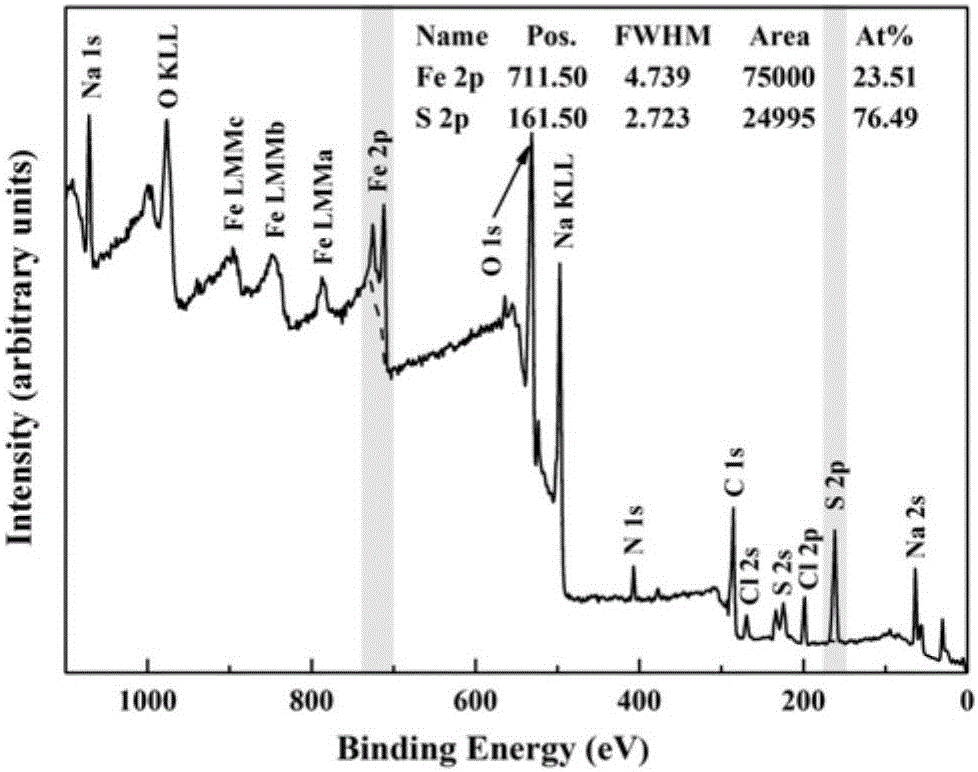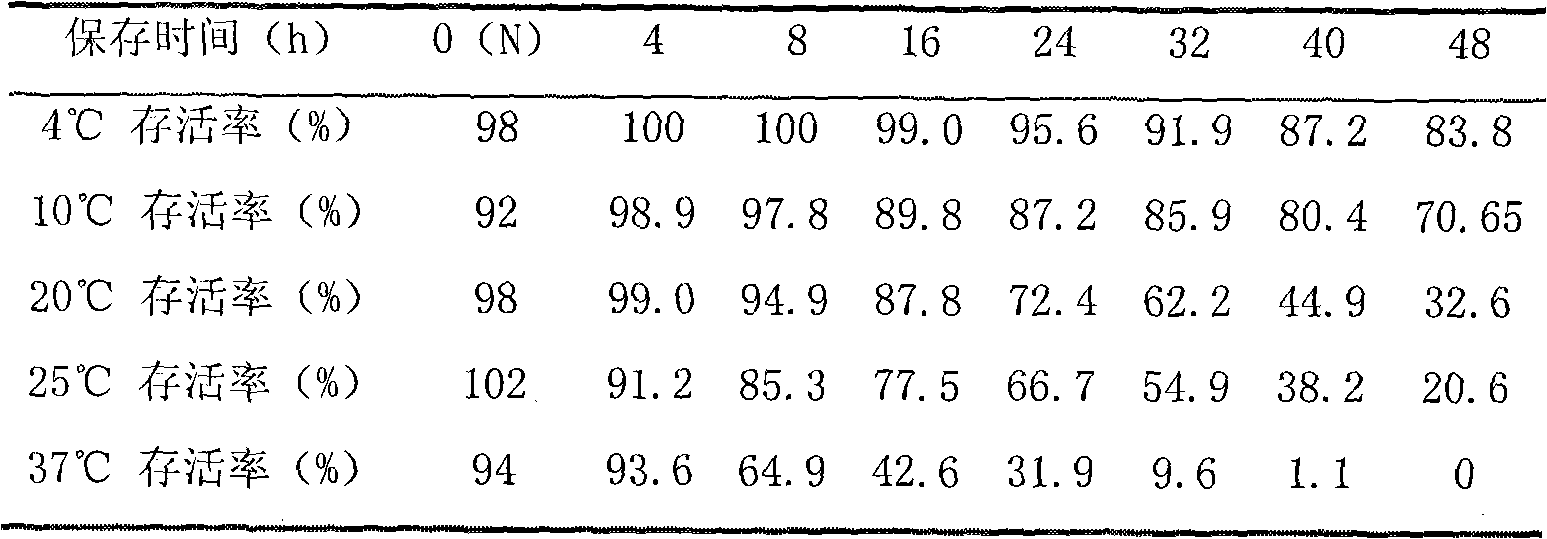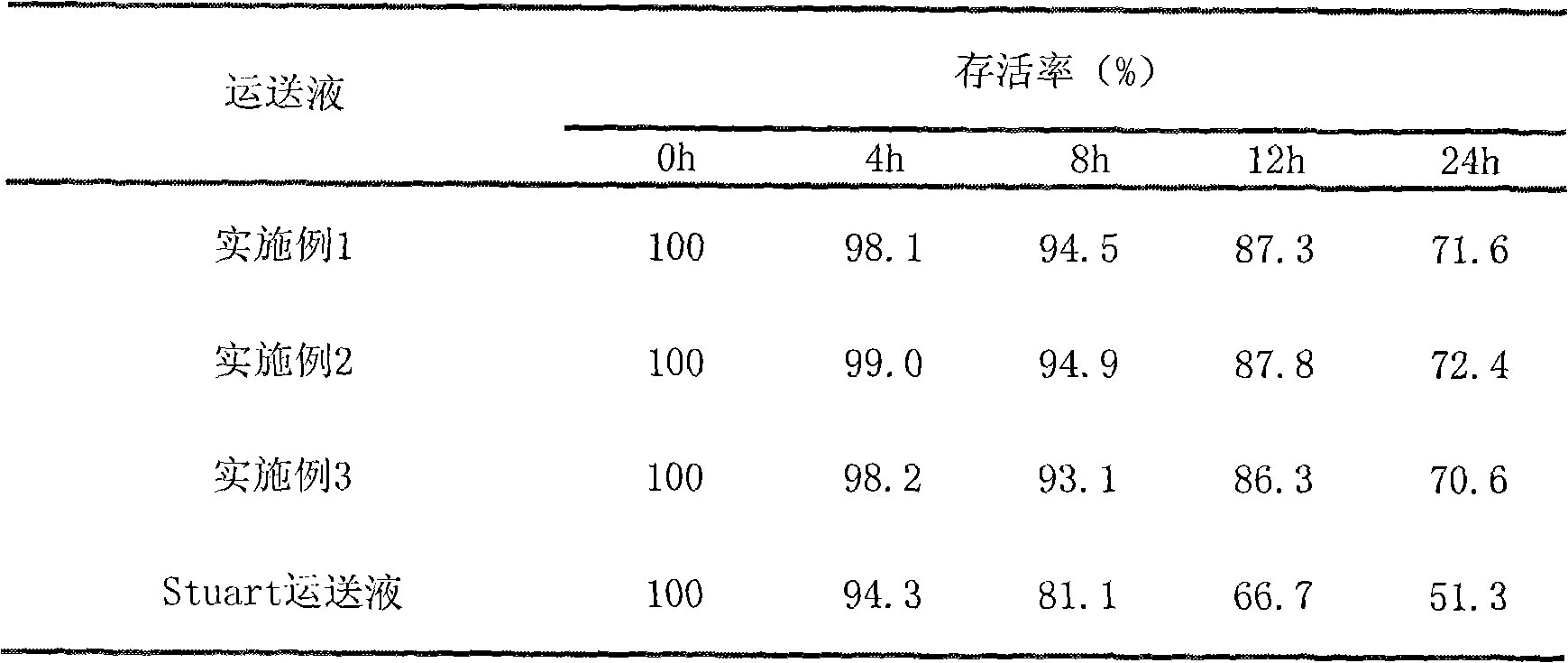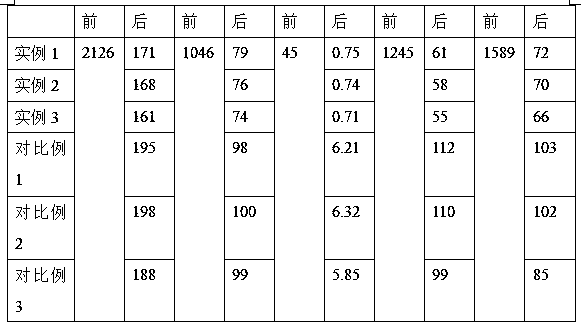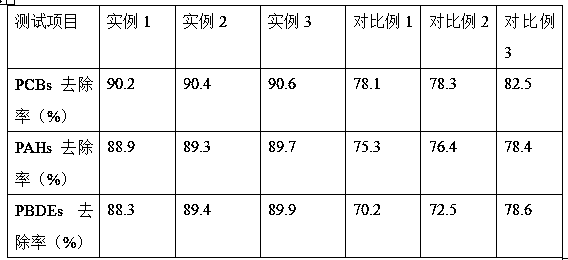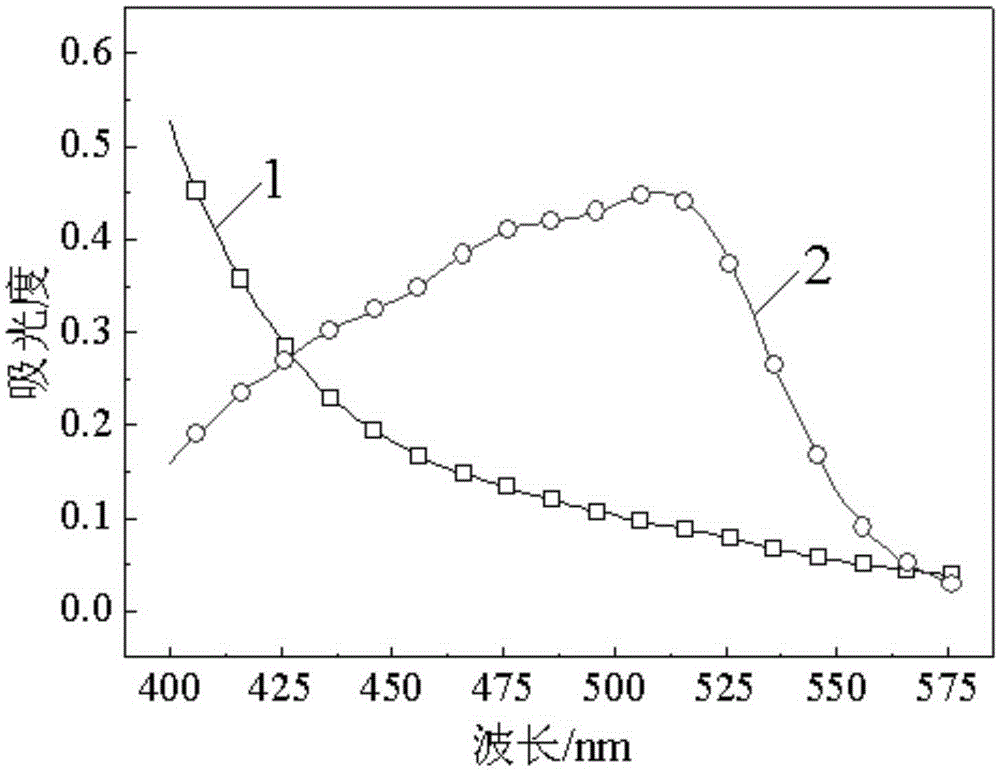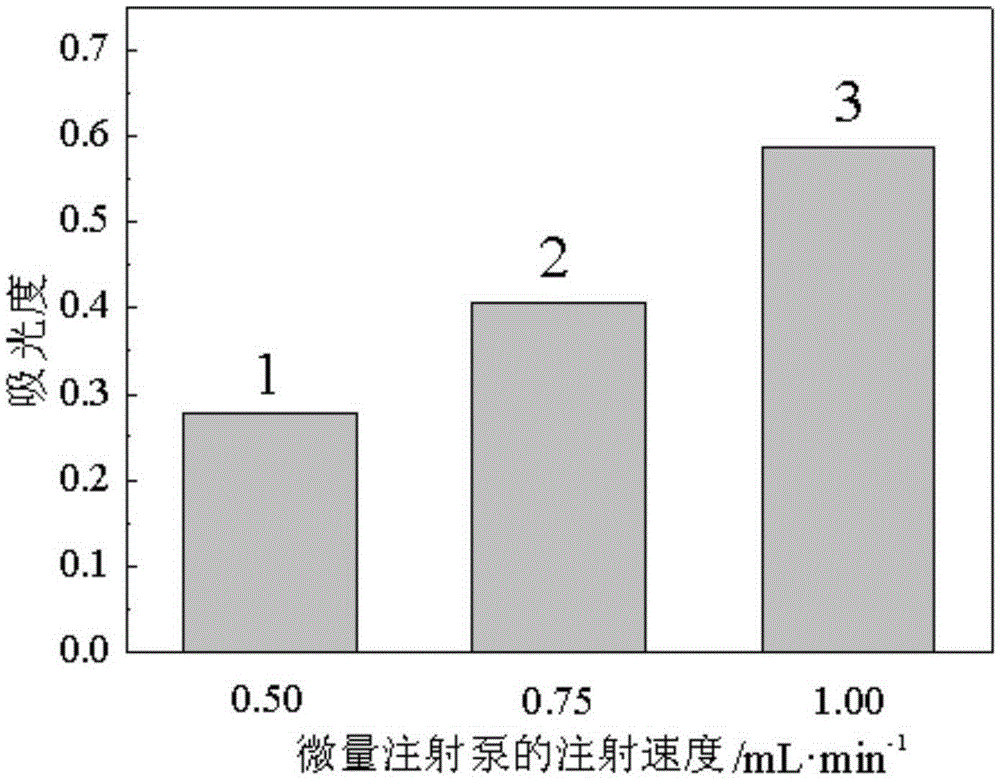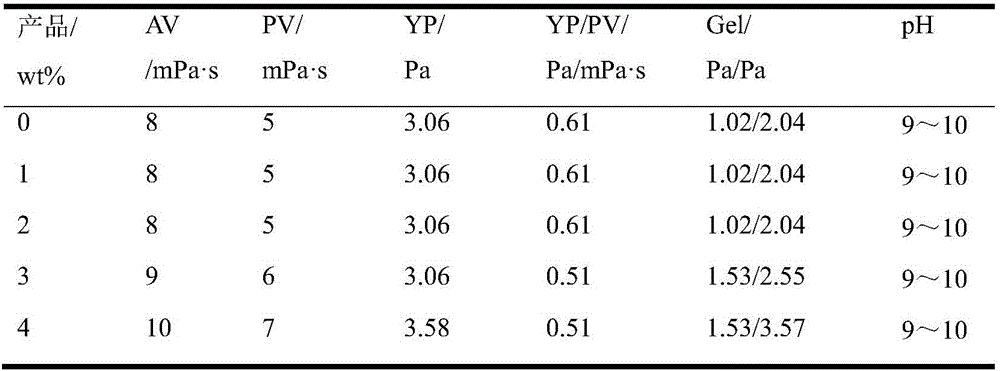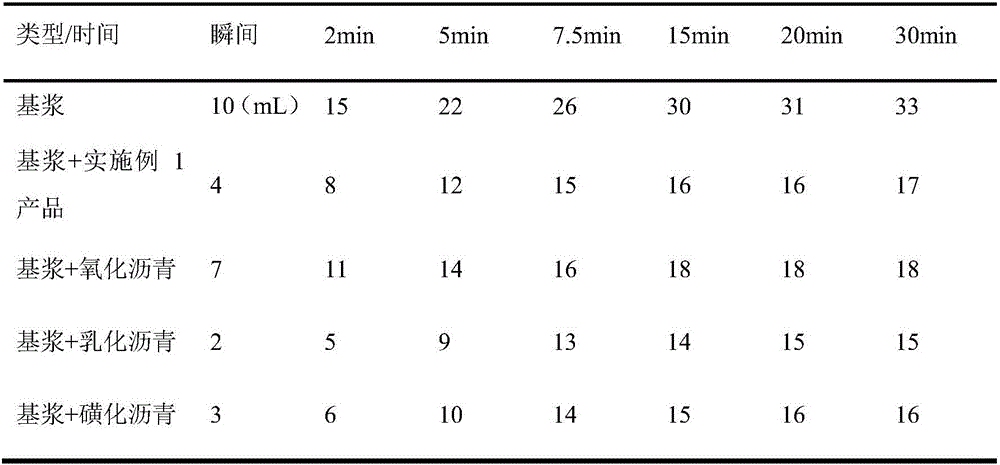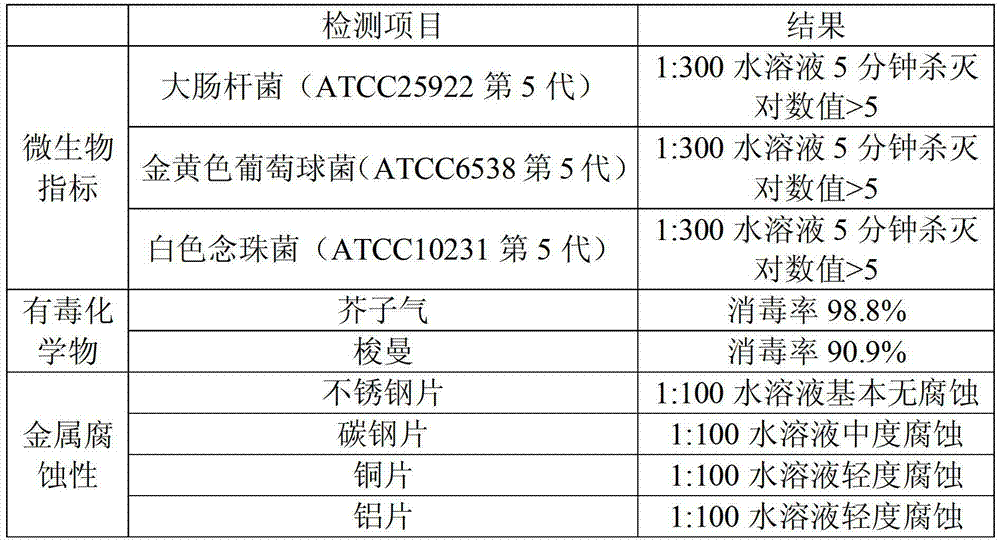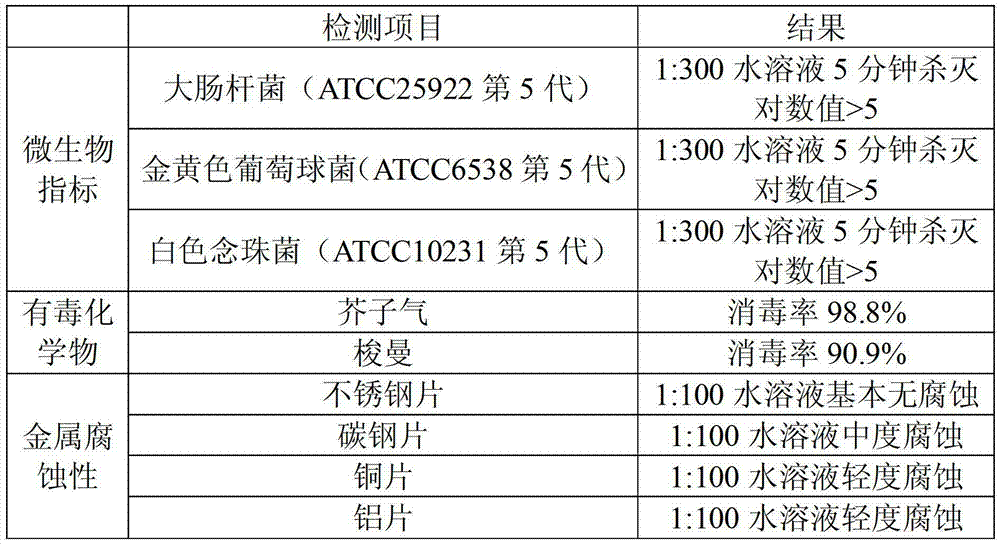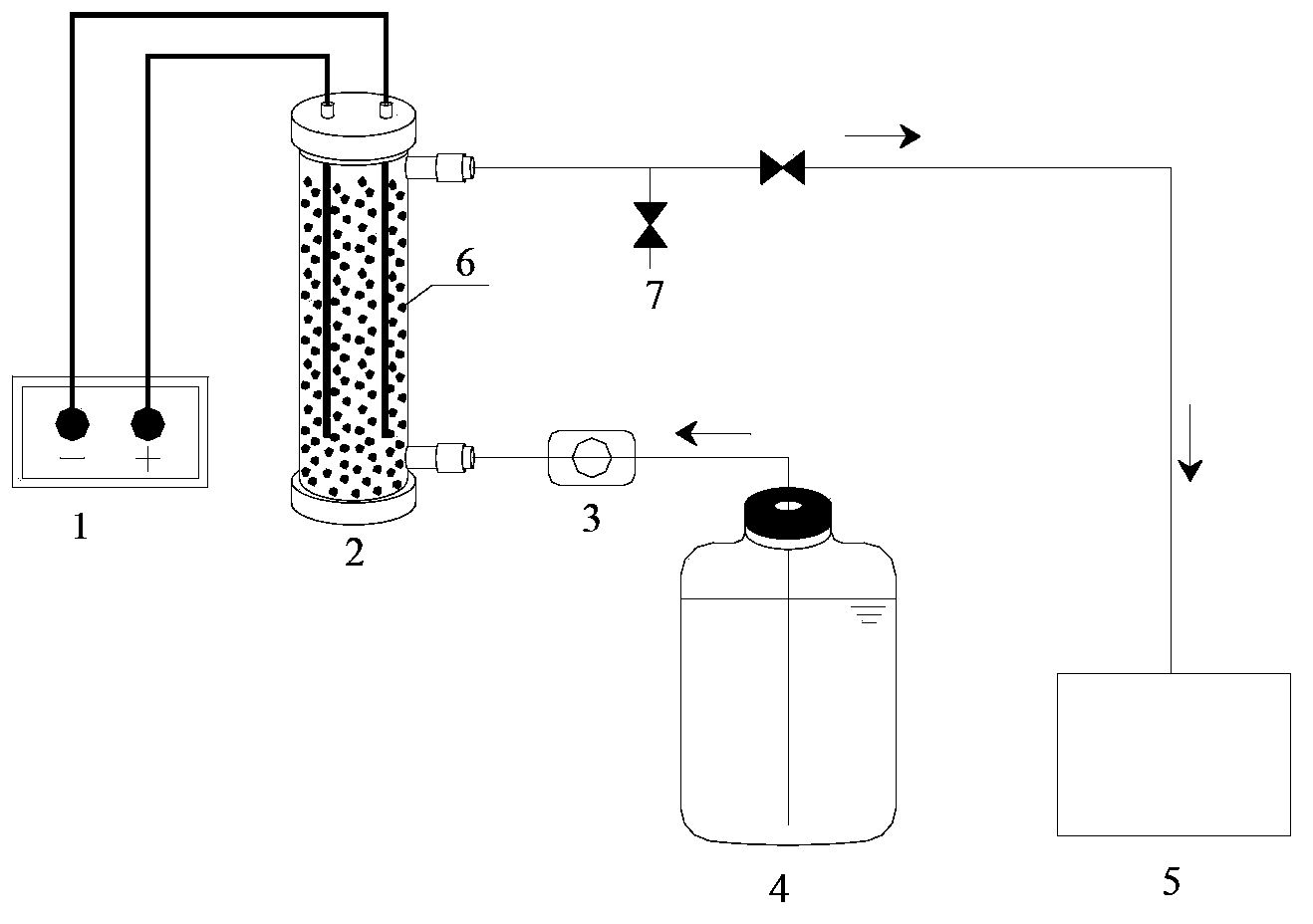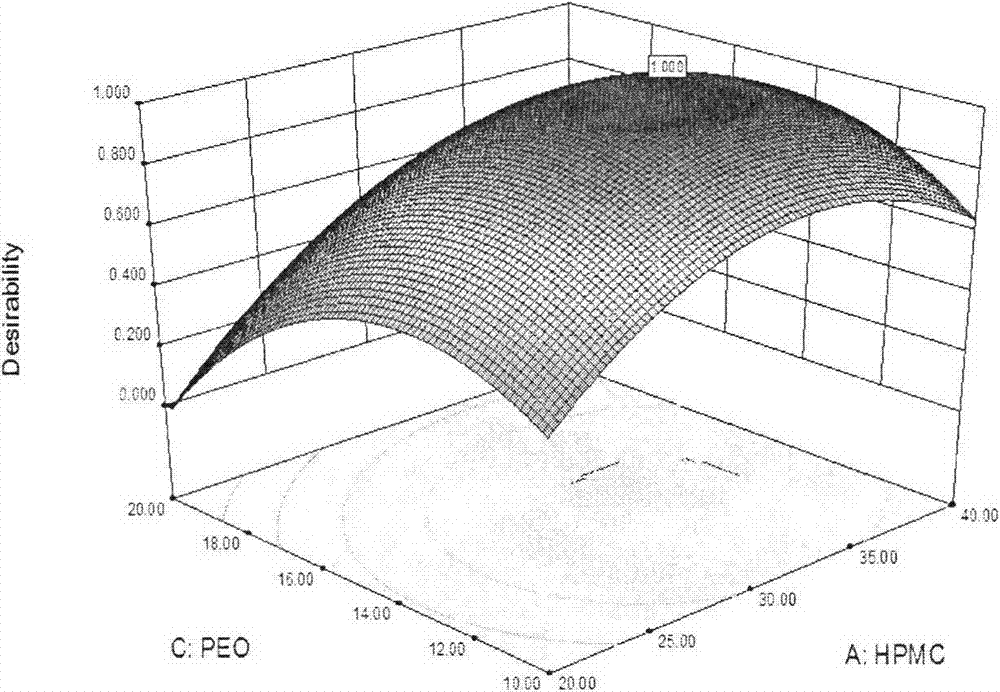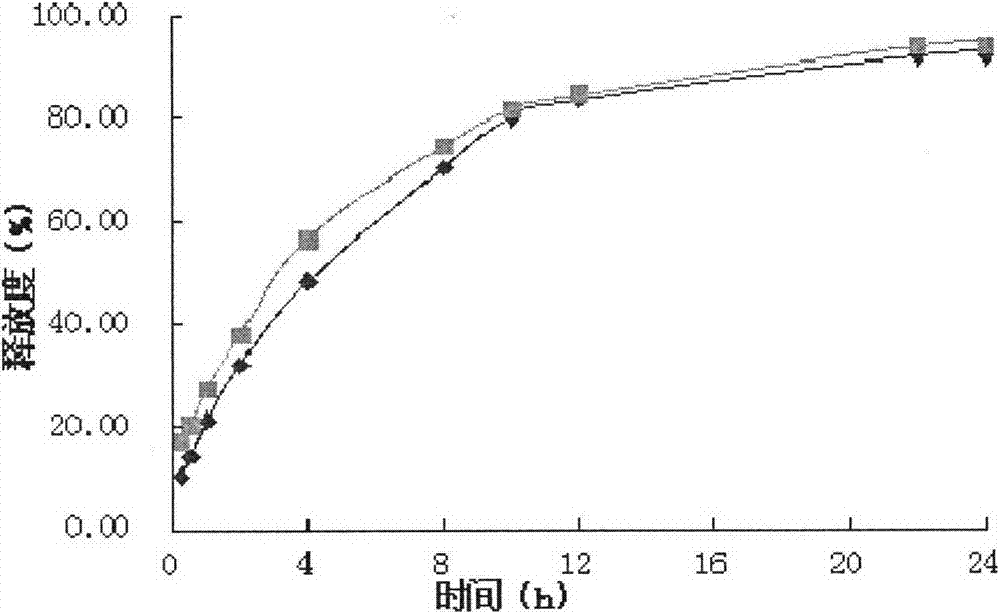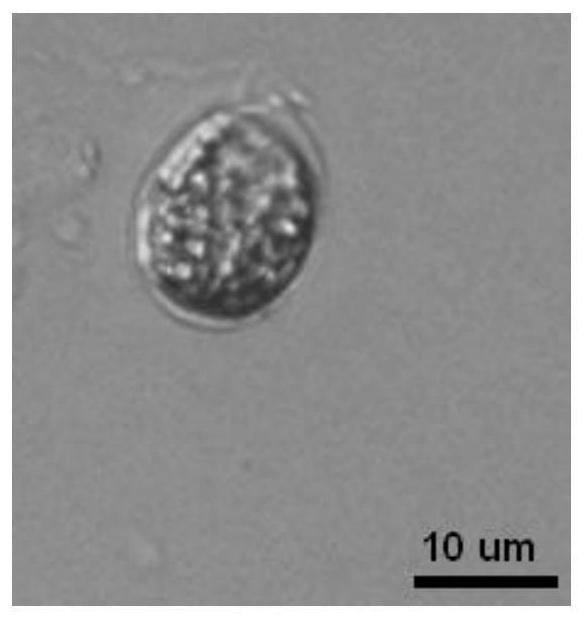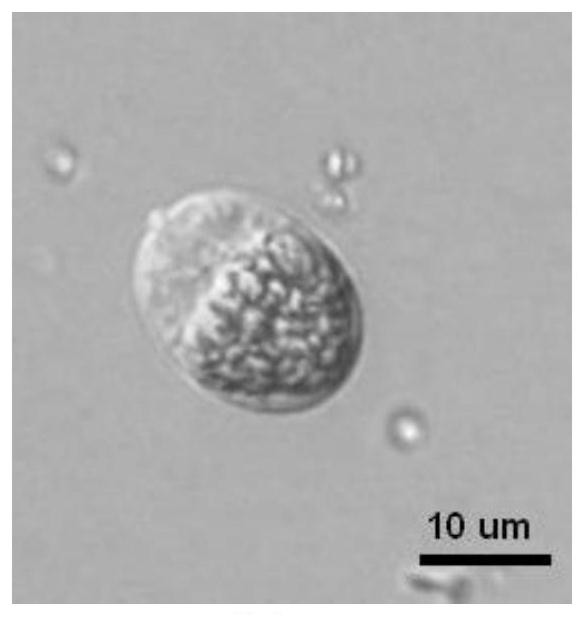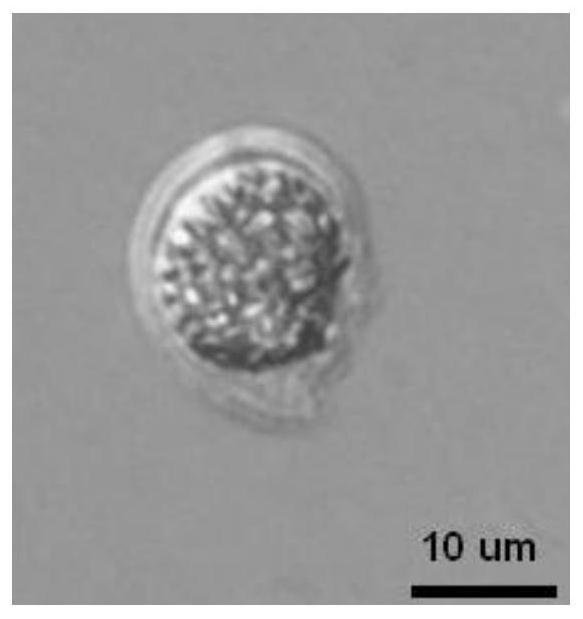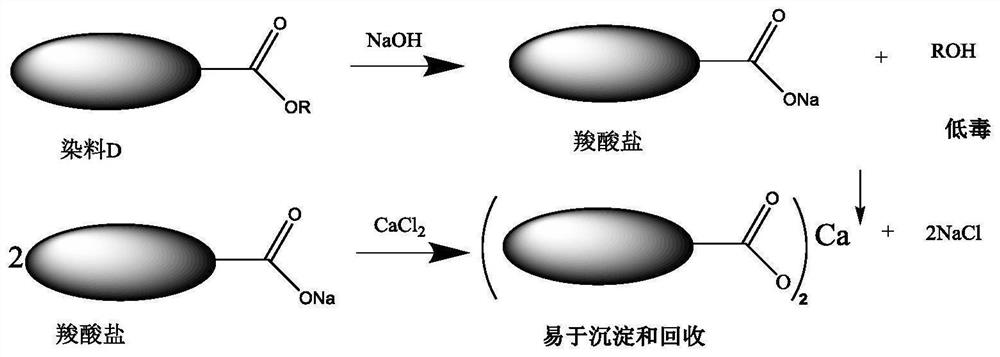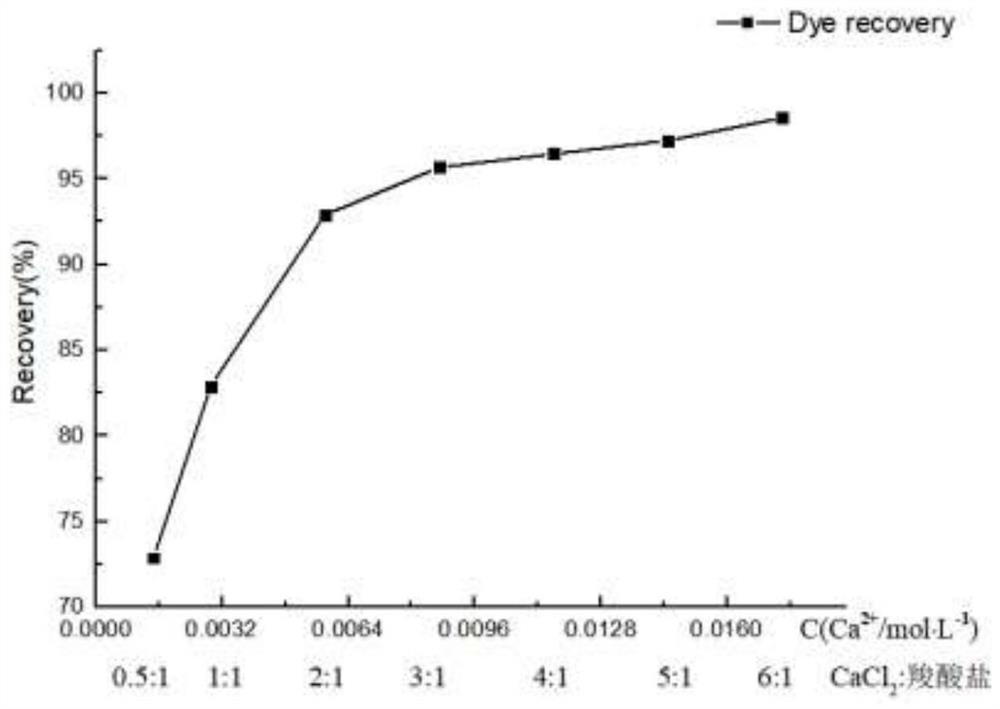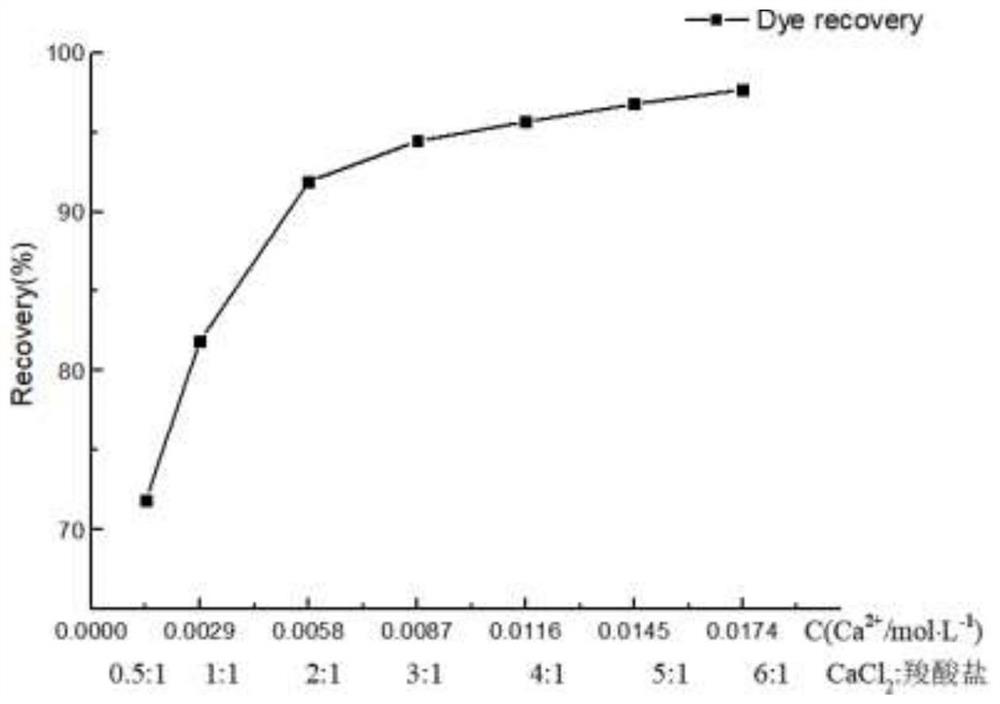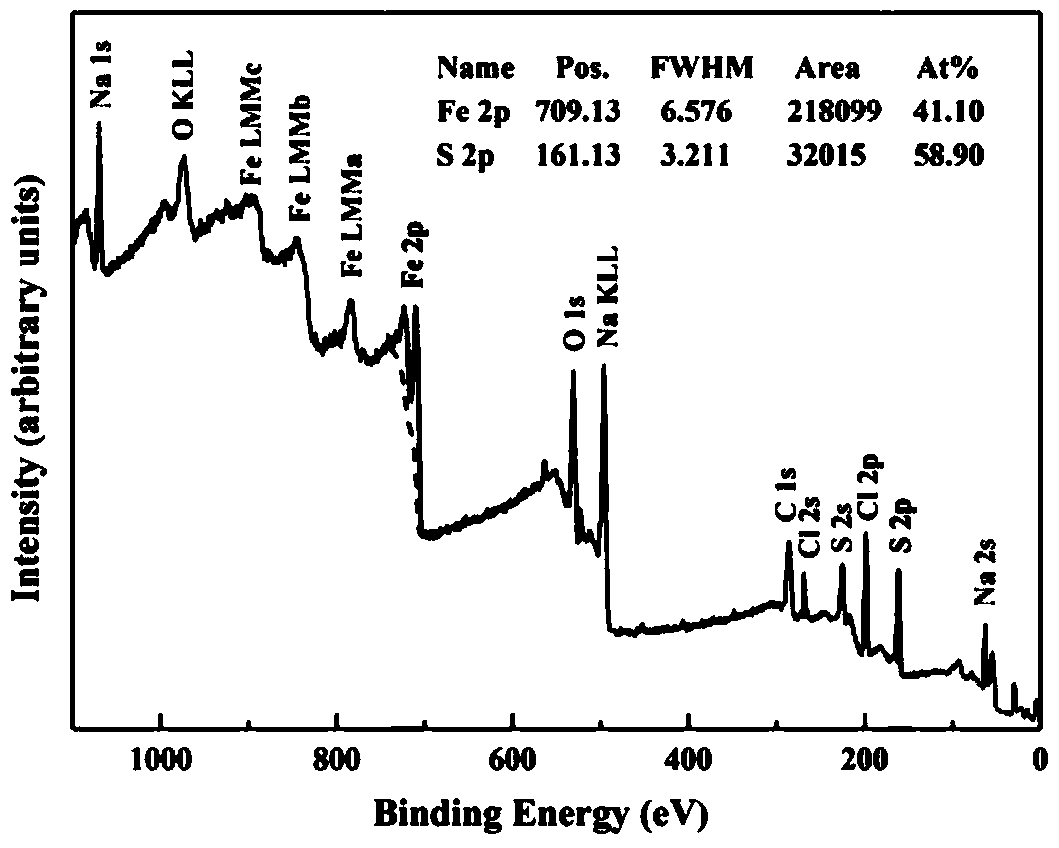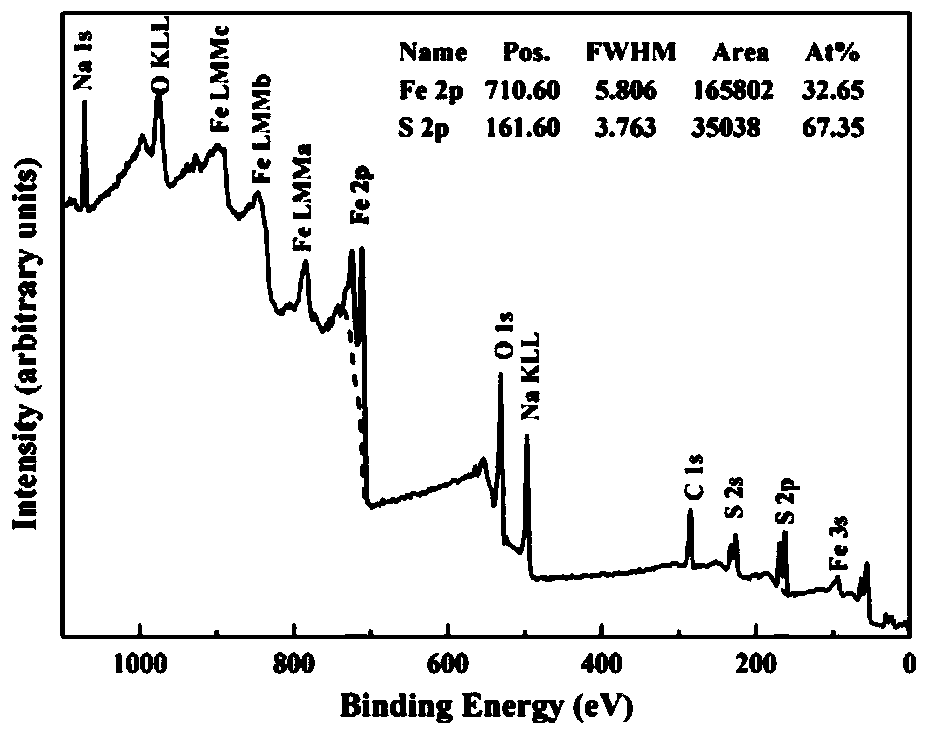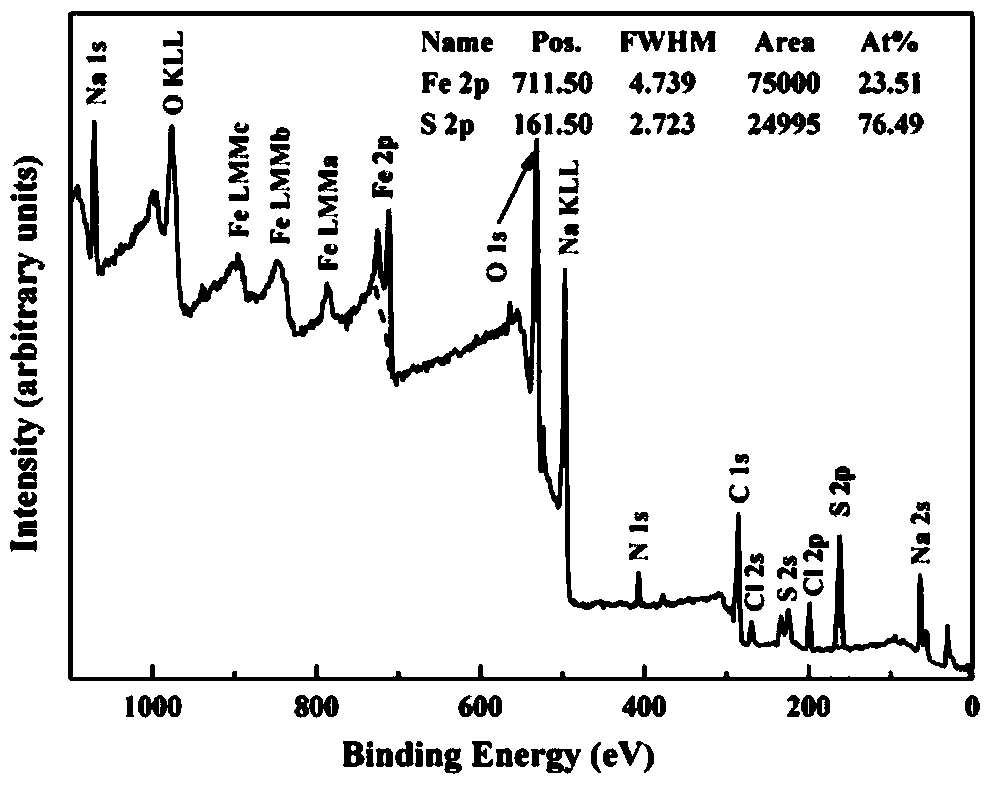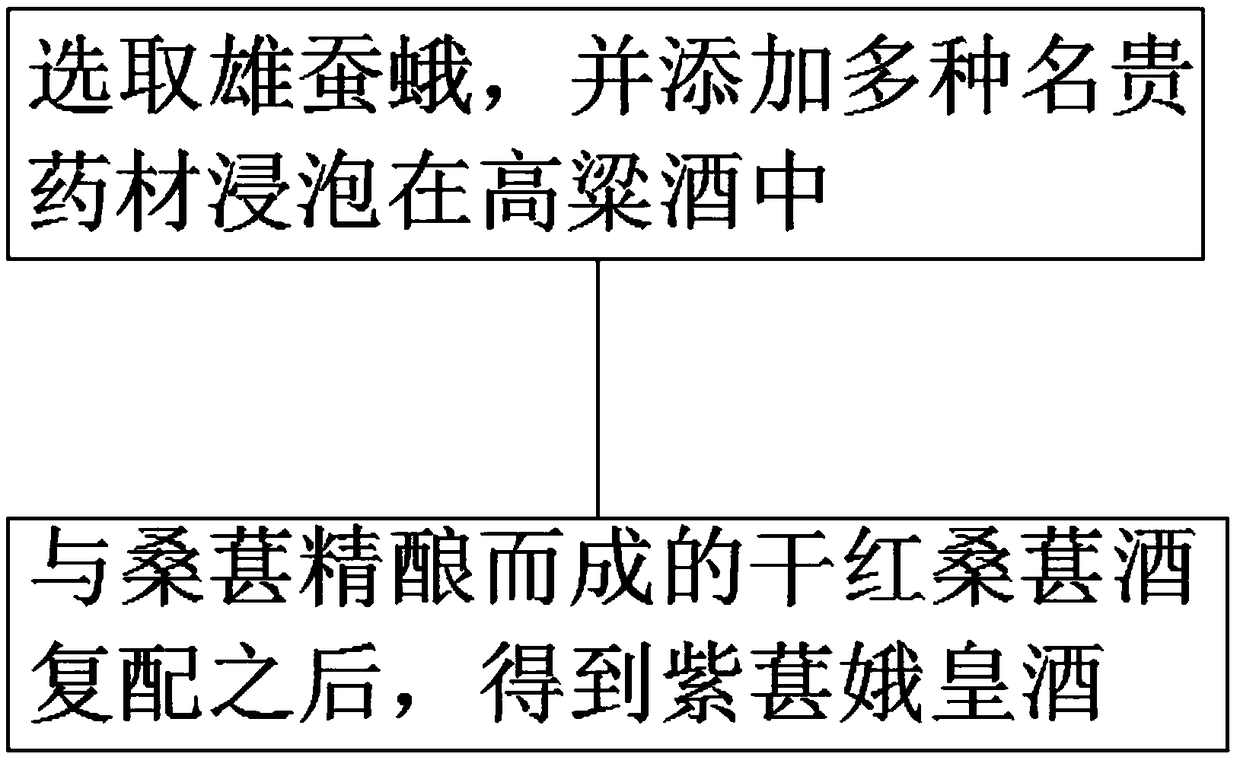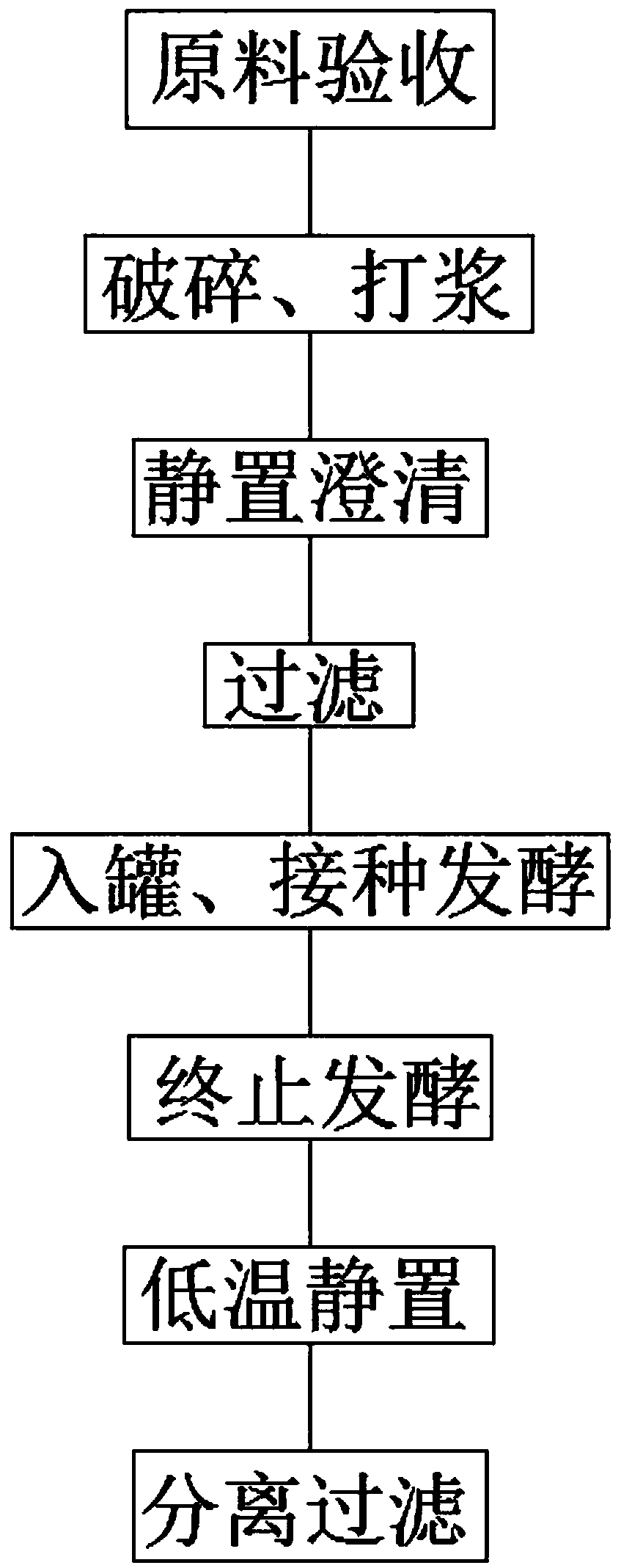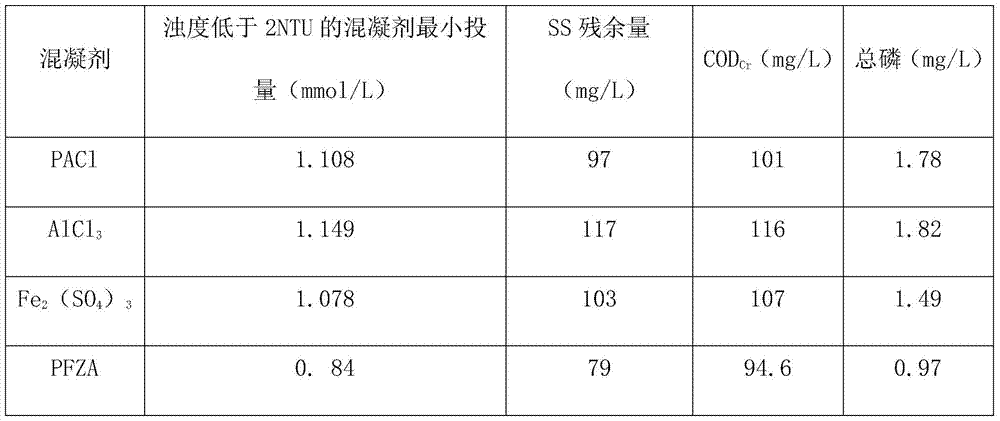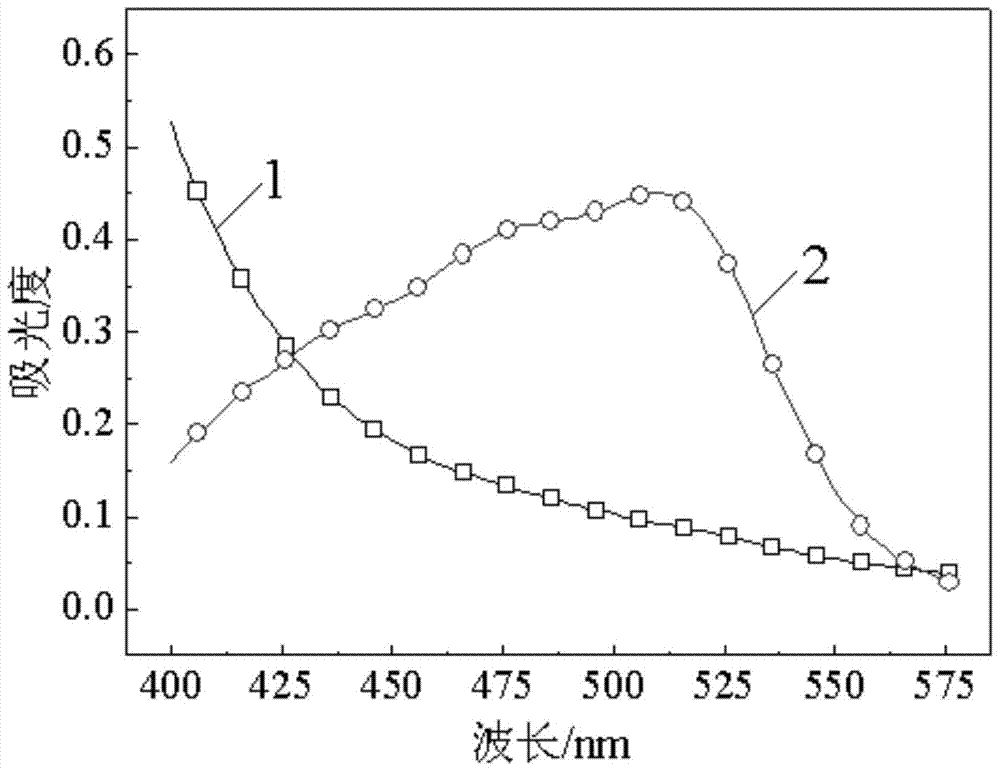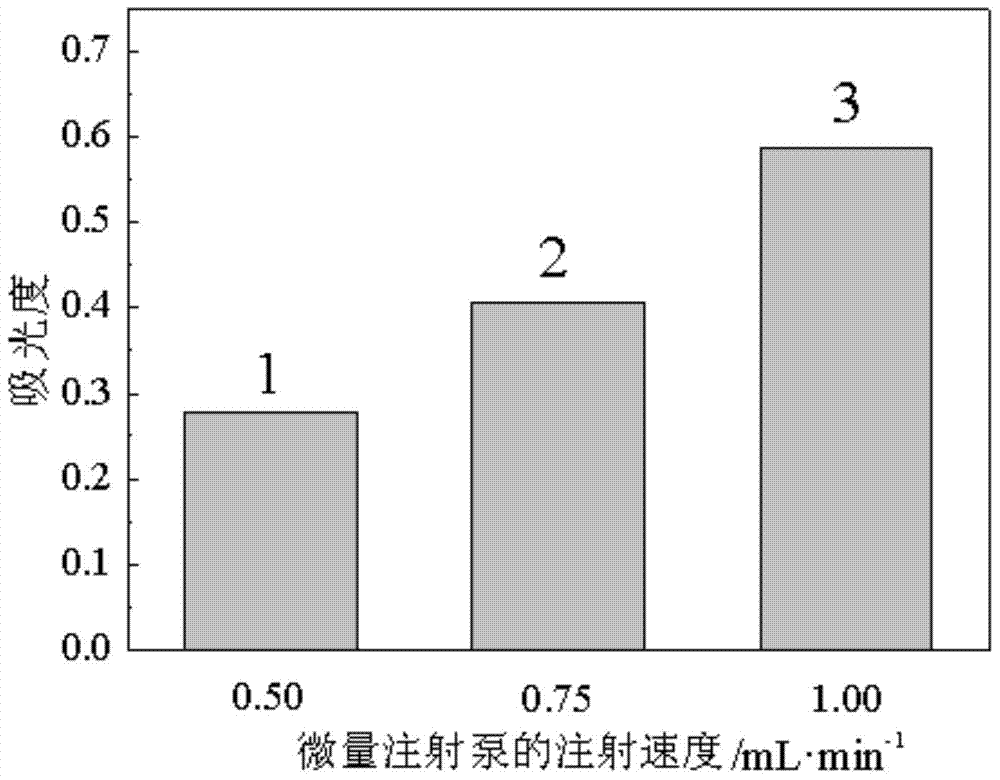Patents
Literature
60results about How to "PH effect is small" patented technology
Efficacy Topic
Property
Owner
Technical Advancement
Application Domain
Technology Topic
Technology Field Word
Patent Country/Region
Patent Type
Patent Status
Application Year
Inventor
Amino-terminated modified cellulose, and preparation method and application thereof
InactiveCN103554510AIncrease added valueLow added valueWater contaminantsWater/sewage treatment by sorptionEthylenediamineFiber
The invention discloses amino-terminated modified cellulose, and a preparation method and application thereof. The method comprises the following steps: firstly, soaking a bagasse material which is cleaned and dried into constant weight in concentrated alkaline for over 10 hours; washing, carrying out suction filtering and drying to obtain alkaline bagasse fibers; then carrying out an oxidation reaction on the alkaline bagasse fibers and a strong oxidant in a dark condition, so as to obtain dialdehyde bagasse cellulose; with methyl methacrylate and ethanediamine as raw materials, stirring in an organic solvent under dark and oxygen-isolated conditions to carry out a polymerization reaction, so as to obtain an amino-terminated hyperbranched polymer; and finally carrying out a reflux reaction after dissolving the dialdehyde bagasse cellulose and the amino-terminated hyperbranched polymer into the organic solvent, so as to obtain the amino-terminated hyperbranched grafted dialdehyde cellulose. The modified cellulose not only has good adsorptive property on heavy metal ions in a wastewater solution, but also is easy to separate after adsorption. Thus, the amino-terminated modified cellulose has the water purification effects of simple method and low cost.
Owner:GUANGXI UNIV FOR NATITIES
Contaminated soil repair method and repair device
PendingCN109513736ALow costAchieve the purpose of removalContaminated soil reclamationMicrobial agentContaminated soils
The invention discloses a contaminated soil repair method and a repair device. The repair method comprises the steps of (S1) vacuum thermal separation: performing thermal separation on soil in a vacuum environment so as to separate hazardous substances, and purifying the hazardous substances; (S2) chemical washing: chemically washing the soil on which the vacuum thermal separation is performed; (S3) reduction treatment: adding a reducing agent to the soil on which the chemical washing is performed; (S4) repair: applying a soil repair agent to the soil on which the reduction treatment is performed; (S5) stabilizing treatment: applying a heavy metal cadmium stabilizer and a microbial agent to the repaired soil; and (S6) improvement and maintenance: improving and maintaining the stabilized soil. According to the contaminated soil repair method, the contaminated soil can be thoroughly repaired once with low cost and high efficiency.
Owner:SHANGHAI ONEDEAR ENVIRONMENT TECH
Few-layer boron nitride as well as preparation method and application thereof
InactiveCN104056590AImprove adsorption capacityPH effect is smallNitrogen compoundsOther chemical processesOperabilityAntibiotic Y
The invention discloses a few-layer boron nitride as well as a preparation method and application of the few-layer boron nitride. The preparation method of the few-layer boron nitride comprises the following steps: mixing carbamide with boric oxide, dissolving the carbamide and the boric oxide in an ethanol aqueous solution and removing the ethanol by heating and evaporating to obtain white powder; transferring the white powder into a porcelain boat, calcining in a tubular furnace by taking nitrogen as a protection gas, and thus obtaining a white solid which is the few-layer boron nitride. The invention also discloses an application of the few-layer boron nitride in absorption removal of antibiotics pollutants in water. The few-layer boron nitride shows high adsorption removal rate of antibiotics after adsorbing for 2-3 minutes at the temperature of 15-45 DEG C and the pH of 3-11, so that the adsorption property of the few-layer boron nitride is obviously better than that of commercial-grade boron nitride. In addition, the material is simple to prepare, low in cost and strong in operability. The application of the few-layer boron nitride in absorption removal of antibiotics pollutants in water has good economic and environmental effects.
Owner:JIANGSU UNIV
Method for preparing polysilicate ferro-aluminum sulfate composite flocculant from red mud waste
InactiveCN108083345AHigh molecular weightGood flocculation effectIron sulfatesWater/sewage treatment by flocculation/precipitationRed mudSilicon oxide
The invention discloses a method for preparing a polysilicate ferro-aluminum sulfate composite flocculant from red mud waste. The method comprises the following steps: (1) putting red mud waste and anactivating agent into a muffle furnace to be roasted and grinding the red mud waste to obtain activated red mud powder; (2) putting an oxidizing agent and the activated red mud powder into a sulfuricacid solution to react; (3) adding adjusting salt to adjust a molar ratio of Fe to Al to Si in the solution as 1 to 1 to (0.2 to 0.7), utilizing a pH conditioning agent to adjust a pH of the solutionto 1 to 6; (4) adding a stabilizer to react and filtering to obtain the polysilicate ferro-aluminum sulfate composite flocculant. By means of the method disclosed by the invention, ferric oxide, aluminum oxide and silicon oxide in the red mud waste are effectively utilized to prepare the polysilicate ferro-aluminum sulfate composite flocculant; not only are the problems that the waste red mud occupies a lot of land and pollutes underground water are solved, but also the waste red mud can be resourcefully utilized, production cost is low, added value of products is high, and a novel way for comprehensively utilizing the red mud waste is provided.
Owner:SUN YAT SEN UNIV
Preparation method and application of iron-sulfur heterogeneous Fenton-like catalyst
ActiveCN105562036AEasy to makeIncrease contactPhysical/chemical process catalystsWater treatment compoundsSulfurPersulfate
The invention relates to a preparation method and application of an iron-sulfur heterogeneous Fenton-like catalyst. The preparation method comprises the following steps of adding a dispersing agent into a ferrous solution, and performing uniform stirring; sequentially and slowly pouring solutions of hydrosulfide and sulfide into the solution, keeping the pH of the solution to be 5.0 to 5.5, and performing stirring for 10 to 20min; slowly adding a solution of sulfite into the solution, keeping the pH value to be 5.0 to 5.5, and performing stirring for 5 to 10min to obtain precursor sol; transferring the precursor sol into a sealed glass bottle, and performing constant temperature (25 DEG C) aging reaction in dark to obtain black precipitates, i.e. the final catalyst. The pH of wastewater is regulated to 7.0 to 11.0, a mixed solution of hydrogen peroxide / persulfate and the synthesized heterogeneous fenton-like catalyst are added into the wastewater, and stirring reaction is performed for 10 to 120min to finish the degrading of organic pollutants in the wastewater. A preparation process of the prepared iron-sulfur heterogeneous Fenton-like catalyst is simple, conditions are mild, and when being used, the prepared iron-sulfur heterogeneous Fenton-like catalyst is large in applicable pH range, and has a good deep treatment effect on industrial wastewater.
Owner:TONGJI UNIV
Preparation method of carbon quantum dots and application of carbon quantum dots in biofilm imaging
ActiveCN107418566AUniform size distributionGood dispersion and light stabilityNanoopticsFluorescence/phosphorescenceSolubilityWater soluble
The invention belongs to the field of biotechnologies and nano materials and provides a preparation method of carbon quantum dots and application of the carbon quantum dots in biofilm imaging. The carbon quantum dots are prepared by taking lactobacillus plantarum fermentation liquid as a raw material through a hydrothermal reaction one-step method. The carbon quantum dots adopt a simple preparation technology, are relatively low in cost, environmentally friendly and easy to implement; the quantum yield of the prepared carbon quantum dots can reach 12%; and the prepared carbon quantum dots have the advantages of relatively high photostability, good water solubility and the like and can be applied to biofilm microbial imaging. Compared with a commercialized biofilm microbial dye, the biofilm microbial imaging process of the carbon quantum dots has the advantages that the carbon quantum dots do not need to be kept in a dark place, are short in incubating time and free of cleaning, long-term imaging observation can be achieved, a biofilm is not destroyed, and red and green double-channel imaging can be carried out at the same time.
Owner:SOUTHEAST UNIV
Method for removing hydrochloric ether contained in underground water and soil mud system through chemical reduction
InactiveCN103288200AEasy to operateGood processing effectWater contaminantsContaminated soil reclamationMud systemsEther
The invention relates to a method for removing hydrochloric ether contained in underground water and a soil mud system through chemical reduction, and belongs to the technical field of environmental management. The method mainly removes certain hydrochloric ether contaminants which exist in the underground water and the soil mud system through the reduction action of ZVI (Zero-Valent Iron). The method achieves the purpose of hydrochloric ether treatment by adding the zero-valent iron to the mud system which contains the hydrochloric ether contaminants in a treatment process. The method disclosed by the invention is simple, effective and outstanding in treatment effect. According to the invention, the zero-valent iron is rich in source, low in cost and higher in reducing capacity, and the hydrochloric ether can be fast dechlorinated and degraded and achieves high removal efficiency, for instance, the removal ratio of 1,1,1-trichloroethane can achieve 99.5%. The method disclosed by the invention can be used for simultaneously treating the hydrochloric ether contained in the underground water and the soil mud system and is less influenced by temperature and pH on reaction process and wide in application range.
Owner:EAST CHINA UNIV OF SCI & TECH
Preparation method of chitosan-hydrotalcite nanocomposite material
ActiveCN108993430AImprove adsorption capacityGood dosageOther chemical processesWater contaminantsAlcoholHydrotalcite
The invention relates to a preparation method of a chitosan-hydrotalcite nanocomposite material. The preparation method comprises the following steps: step one, adding 0.5g of chitosan into 70 mL of a2% acetic acid solution, carrying out ultrasonic dissolution to obtain a yellowish transparent solution, and adding 0.5-2.5 g of magnesium aluminum hydrotalcite into 50 mL of a 2% acetic acid solution for dissolution; step two, putting the two dissolving solutions into a three-necked flask at a same time, carrying out a reaction by stirring for 1 hour, adding 5 mL of formaldehyde, carrying out heating to 60 DEG C, carrying out a reaction for 1 hour, adjusting the pH value to be about 9.0 by using a NaOH solution with a concentration of 1 mol / L, adding 10 mL of epichlorohydrin, keeping the pHvalue to be about 9.0 at any time by adjusting, and carrying out a reaction for 2.5 hours; and step three, carrying out washing with absolute ethyl alcohol to neutrality, finally carrying out drying at a temperature of 60 DEG C, and carrying out grinding and sieving to obtain the white solid chitosan / magnesium aluminum hydrotalcite.
Owner:UNIV OF JINAN
Iron modified chitosan defluorinated particle adsorbent and preparation method thereof
ActiveCN104069830AHigh removal rateHigh fluoride ion removal rateOther chemical processesWater contaminantsAmmoniaFerric
The invention discloses an iron modified chitosan defluorinated particle adsorbent and a preparation method thereof. The preparation method comprises the following steps: step 10, chitosan is dissolved in an acetum at the indoor temperature and stirred until the chitosan is completely dissolved in the acetum to obtain a chitosan solution; step 20, hexahydrate ferric trichloride is added into the chitosan solution and stirred to be uniform, and the mixed solution is put to be stationary; step 30, the mixed solution is added into ammonia water dropwise, put to be stationary, washed by deionized water to be neutral and dried to obtain the particle adsorbent. According to the invention, the method is adopted, so that not only is the prepared iron modified chitosan defluorinated particle adsorbent high in the removal rate of fluorinion and large in adsorbing capacity, but also the removal rate of fluorinion is less influenced by temperature and pH.
Owner:北京涞澈科技发展有限公司
Bacterium capable of adsorbing lead and enduring heavy metals and application of bacterium
InactiveCN107619806AGood removal effectImprove repair efficiencyBacteriaWater contaminantsBacteroidesMetabolite
The invention discloses a bacterium capable of adsorbing lead and enduring heavy metals and application of the bacterium. The bacterium is classified and named as bacillus megatherium Z-y3, and the preservation number of the bacterium is CCTCC NO.M2017312. The strain can grow well in a 1000mg / L solid culture medium. The strain disclosed by the invention has an alkali generation capability and hasa relatively good lead removal property at different pH values, and the adsorption amount of a cultured bacterium can be maximum, namely about 20g / L, within a short time. The lead-removal metabolite of the strain is non-toxic and is environmentally friendly. Therefore, the strain has very high application values in treatment on lead heavy metal polluted water bodies, soil environment treatment andcomprehensive treatment on industrial field pesticide pollution.
Owner:WUHAN UNIV
Polysilicate aluminum sulphate flocculant, preparation process and use thereof
ActiveCN101298346AEven distribution of silicon and aluminumHigh molecular weightWater/sewage treatment by flocculation/precipitationChemistryAluminum sulphate
The invention relates to a poly-aluminum silicate chloride (PASC) flocculant, a production technique and an application thereof. The invention adopts the tetra ethyl ortho silicate (TEOS) as the silicon source, which is mixed with aluminum chloride solution and is gradually dripped with alkaline to obtain the PASC flocculant. The poly-aluminum silicate chloride (PASC) flocculant, the production technique and the application thereof have the advantages that the silicon and aluminum distribution in the PASC flocculant is more uniform, the molecular weight is bigger and the product has better reproduction quality reproduction quality; at the same time, the product has good turbidity removal and decoloring effect, and the content of the residual aluminum is low and is less affected by the PH value; also, the product is an efficient water treatment agent with wider optimal chemical dosing range. The invention can be widely used for the water purification and the turbidity removal, decoloration, deoiling and solid-liquid separation during the wastewater treatment.
Owner:PEKING UNIV
Method for preparing titanium dioxide from waste honeycomb denitration catalyst
The invention discloses a method for preparing titanium dioxide from a waste honeycomb denitration catalyst. The method comprises the steps of pretreatment, acidolysis, sedimentation and impurity removal, seed crystal preparation, metatitanic acid preparation by hydrolysis, titanium dioxide preparation and the like. Preparation of the titanium dioxide from the waste honeycomb denitration catalystis combined to a production process for preparing titanium dioxide by an existing sulfuric acid method, existing production equipment is utilized fully, investment on new plant equipment is reduced, meanwhile, the recovery rate of the titanium dioxide is high, and the product meets the production requirement. According to the method, an additional seed crystal hydrolysis process is adopted, pH ofthe slurry is controlled to maintain strong acidity, removal of impurities is facilitated, waste acid generated by hydrolysis can be recycled, and economic and environmental benefits are high.
Owner:SHANDONG DAWN TITANIUM IND
Method for removing iodo-X-ray contrast medium in water
InactiveCN109293103AControl concentrationHigh removal rateWater/sewage treatment by irradiationWater contaminantsFiltrationUltraviolet
The invention relates to a method for removing an iodo-X-ray contrast medium in water. The method includes the steps: oxidant feeding, to be more specific, adding sodium persulfate into to-be-treatedwater until the concentration of sodium persulfate in the water reaches 23.8-71.4mg / L; ultraviolet irradiation, to be more specific, subjecting the to-be-treated water to ultraviolet irradiation for 5-10 minutes after oxidant feeding. Compared with the prior art, the method has advantages that high degradation efficiency is achieved, the concentration of the ICM (iodo-X-ray contrast medium) in thewater can be decreased by 87% or more, the method is slightly affected by pH (potential of hydrogen) changes, and reaction products are mainly sulfate ions and iodate ions and can be removed by simple coagulation, precipitation or membrane filtration, so that the method is a safe and stable drinking water treatment method.
Owner:SHANGHAI UNIVERSITY OF ELECTRIC POWER
Hexavalent chromium pollution in-situ repairing agent FeSx, preparation and application
ActiveCN105713615APolysulfideWith ferrous ionWater contaminantsContaminated soil reclamationWater solublePolysulfide
The invention discloses hexavalent chromium pollution in-situ repairing agent FeSx, preparation and application. The preparation includes: preparing a solution of water-soluble sulfur-containing regent as well as water-soluble iron-containing reagent, mixing well at pH 3.0-8.0, and carrying out solid-liquid separation to obtain solid that is iron polysulfide (FeSx), used as in-situ repairing agent for hexavalent chromium polluted soil and underwater.
Owner:PEKING UNIV
Transport fluid for culturing helicobacter pylori in gastric biopsy specimen and preparation method and application thereof
InactiveCN101911930AHelps maintain cell functionConducive to preservationDead animal preservationBiologyDetection rate
The invention relates to transport fluid for culturing helicobacter pylori in a gastric biopsy specimen and a preparation method and application thereof. Viscosity is enhanced, pH value is increased appropriately and anti-mixed bacterium medicaments are increased, so that the survival of the helicobacter pylori in the gastric biopsy specimen is protected and the preservation time of the specimen is prolonged. The transport fluid has high practical value. Bacteria detection rate is not affected if the specimen is submitted within 24 hours after being collected. The survival rate of the helicobacter pylori preserved at room temperature within 24 hours is over 50 percent. The transport fluid is suitable for detection in hospitals and inspection institutions in different levels.
Owner:WENZHOU MEDICAL UNIV
Preparation method of soil remediation material
InactiveCN109880629AImprove adsorption capacityReduce dissociationAgriculture tools and machinesOrganic fertilisersBiological activationSilica gel
The invention relates to the field of soil remediation and relates to a preparation method of a soil remediation material. According to the invention, after natural attapulgite clay is subjected to acid treatment, impurities such as dolomite and calcium carbonate are removed, the bonding force between original molecules is weakened, pore channels are dredged, uniformly-distributed gaps are formedon the surface, the adsorption performance of the soil remediation material is improved, activation pore channels are provided for the load of nano zero-valent iron, polyethyleneimine is tightly adsorbed on the inner surface of silica gel pores to form a nanofiltration film, heavy metal ions can be adsorbed and concentrated, the heavy metal ions can be efficiently adsorbed, the zero-valent iron can increase the effective surface area of nano-particles and enhance the active sites, and the electron transfer is enhanced, so that the adsorption efficiency is improved, the zero-valent iron can exchange heavy metals in the soil after being oxidized, after ferrous ions are fixed by Rhodococcus coprophilus, metabolic channels are induced to change, more degradable soil organic pollutants can be secreted, and the method has a wide application prospect.
Owner:雷小鹏
Method for quantitatively detecting concentration of hydroxyl free radical in Fenton partition system
ActiveCN105259126ARealize quantitative detectionLow priceAnalysis by subjecting material to chemical reactionColor/spectral properties measurementsHigh concentrationLuminosity
The invention discloses a method for quantitatively detecting the concentration of hydroxyl free radical in a Fenton partition system, and relates to a method for quantitatively detecting the concentration of hydroxyl free radical in a solution. The method aims at solving the problems that an existing method for detecting the concentration of .OH in an H2O2 solution is achieved through expenditure devices, is complex in operation and can hardly quantitatively detect the concentration of OH. The method includes the steps of firstly, preparing a solution to the tested; secondly, drawing a standard curve; thirdly, obtaining a regression equation; fourthly, calculating the concentration of hydroxyl free radical in the extracted solution to be tested according to the regression equation in the second step, and then quantitatively detecting the concentration of hydroxyl free radical in the Fenton partition system. By means of the method, the clinical concentration of H2O2 is determined, the influences of high-concentration H2O2 to a split light luminosity detecting method based on a Russell reaction mechanism are avoided, and detection accuracy is greatly improved. The method for quantitatively detecting the concentration of hydroxyl free radical in the Fenton partition system can be obtained.
Owner:HUAWEI TEHCHNOLOGIES CO LTD
Environmentally-friendly low-fluorescence plugging agent used for drilling fluids, and preparation method thereof
ActiveCN106543993AImprove protectionSmall rheological propertiesDrilling compositionFiberFluorescence
The invention belongs to the field of additives for drilling fluids, and concretely discloses an environmentally-friendly low-fluorescence plugging agent used for drilling fluids, and a preparation method thereof. The plugging agent is prepared from, by weight, 35-45 parts of C1618 fatty alcohol, 40-45 parts of stearic acid, 2-6 parts of polyethylene glycol, 0.5-1.5 parts of p-toluenesulfonic acid, 0.5-1.5 parts of alkylphenol polyoxyethylene, 10-16 parts of lightweight CaCO3 and 10-15 parts of cotton fibers. The plugging agent has the advantages of low fluorescence grade, biodegradability, facilitation of environmental protection, and integration of the excellent plugging and anti-sloughing performances and the oil reservoir protection effect of an asphalt product.
Owner:TIANJIN TIANCHENG TUOYUAN TECH DEV
Biochemical decontamination agent and preparation method thereof
The invention discloses a biochemical decontamination agent and a preparation method of the biochemical decontamination agent, and belongs to the application field of sanitizers. Components and mass percentage contents of the components are shown as below on the basis of taking the total mass of the decontamination agent as 100%: 15.5% to 30% of 1-Bromo-3-chloro-5,5-dimethylhydantoin; 10% to 25% of dibromohydantoin; 20% to 30% of sodium percarbonate; 20% to 30% of sodium carbonate; 2% to 6.5% of chelating agent; 0% to 10% of surfactant. Mixing the sodium carbonate and the sodium percarbonate evenly after being screened under the condition of 20 Celsius degrees to 25 Celsius degrees, a constant pressure, and the relative humidity equal to or less than 40, and mixture is obtained. Adding the dibromohydantion, the 1-Bromo-3-chloro-5,5-dimethylhydantoin, the surfactant and the chelating agent into the mixture sequentially under the temperature of 20 Celsius degrees to 30 Celsius degrees, the constant pressure and the relative humidity equal to or less than 40 evenly, and therefore the biochemical decontamination agent is obtained. The biochemical decontamination agent is small in metal corrosivity, does not produce residual toxicity after usage, and does not cause secondary pollution.
Owner:ENG DESIGN RES INST OF SECOND ARTILLERY PLA
Method for removing ammonia nitrogen by three-dimensional electrode
InactiveCN103420456AEfficient removalAvoid replacementWater/sewage treatment using germicide/oligodynamic-processWater/sewage treatment by sorptionElectrolysisThree dimensional electrode
The invention relates to a method for removing ammonia nitrogen in waste water by a three-dimensional electrode in an electrolytic bath. The method comprises the following steps: feeding the waste water in the electrolytic bath to enable the waste water to keep a certain hydraulic retention time in the electrolytic bath; adopting a particle electrode in the three-dimensional electrode to absorb ammonia nitrogen in the waste water; adopting a power supply to enable the electrolytic bath to be electrified and keep certain current density, and adopting the cathode and the anode in the three-dimensional electrode to electrolyze ammonia nitrogen in the waste water and the particle electrode to obtain treated waste water and a reproducing particle electrode; feeding the treated waste water into the electrolytic bath, and adopting a water collecting tank to collect the treated waste water.
Owner:UNIV OF SHANGHAI FOR SCI & TECH
Preparation method of polysilicon aluminum ferric sulfate flocculant based on red mud
InactiveCN110040832AIncrease profitAvoid pollutionWater/sewage treatment by flocculation/precipitationRed mudSilicon oxide
The invention discloses a preparation method of a polysilicon aluminum ferric sulfate flocculant based on red mud, and relates to the technical field of composite flocculants. The invention disclosesa preparation method of the polysilicon aluminum ferric sulfate flocculant based on red mud. The prepared polysilicon aluminum ferric composite flocculant is a macromolecular flocculant for water treatment and is prepared by taking red mud waste as a main raw material, so that iron oxide, aluminum oxide and silicon oxide in the red mud waste are effectively utilized for preparing the flocculant. Alarge amount of red mud waste is used in production, so that serious environment pollution due to the red mud waste is avoided, and the red mud waste can be recycled. The method is low in use cost and high in product additional value, the comprehensive utilization rate of the red mud waste is increased, good social benefits, economic benefits and environmental benefits are achieved, and great convenience is brought to people during production and manufacturing of the flocculating agent.
Owner:滨州大宗固废资源循环利用研究院有限公司
Cationic flocculant and application thereof
InactiveCN104326543AImprove the effect of flocculation treatmentGood decolorization effectWater contaminantsWaste water treatment from animal processingSludgeWastewater
The invention relates to a cationic flocculant and application thereof. An adopted technical scheme is as follows: adding dicyandiamide to a reaction kettle, slowly adding formaldehyde, preventing explosion and boiling, controlling temperature at 30-40 DEG C, and stirring for dissolving; adding metallic salt which accounts for 3 / 4 of total amount to the reaction kettle firstly, reacting at 60-100 DEG C for 2-4h, then adding rest 1 / 4 metallic salt, reacting at 60-100 DEG C for 1-3h, and finally regulating the PH to 8-9, thus obtaining a target product. The dicyandiamide-formaldehyde cationic flocculant disclosed by the invention has the characteristics of being good in decoloring effect, broad in application scope, low influence from PH of wastewater, low addition, little generated sludge and the like; and the cationic flocculant, besides dyed wastewater, also has a good treatment effect on oily sewage, papermaking wastewater, slaughtering wastewater and SCN- in food.
Owner:LIAONING UNIVERSITY
Atenolol pH independent sustained-release tablets and preparation method thereof
InactiveCN103784413APH effect is smallAvoid instabilityOrganic active ingredientsPharmaceutical delivery mechanismPolyethylene oxideEudragit RSPO
The invention relates to the pharmaceutic preparation field and in particular relates to atenolol pH independent sustained-release tablets and a preparation method thereof. The atenolol pH independent sustained-release tablets are characterized by being prepared through the steps of evenly mixing a prescription amount of atenolol, HPMC (Hydroxy propyl methyl cellulose) K15M, eudragit RSPO, high-viscosity PEO (Polyethylene Oxide) and lactose monohydrate in such a manner of progressively increasing by equal amount, next, adding a small quantity of magnesium stearate and aerosil as the lubricant, and then forming the atenolol pH independent sustained-release tablets through a powder vertical-compression process. The pH independent sustained-release tablets are prepared effectively, and the slightly alkaline drug atenolol is provided to have similar release characteristic under different simulated gastrointestinal tract pH conditions. The HPMC stable in slow release performance is taken as the slow release framework of the pH independent sustained-release tablets, the eudragit RSPO is taken as the pH regulator of the pH independent sustained-release tablets, and the high-viscosity PEO is taken as the retardant of the pH independent sustained-release tablets; the preparation process is simple, the adverse effect of the drug is remarkably reduced and the compliance of the patient is improved; and besides, the pH independent sustained-release tablets have important economic value and social significance.
Owner:CHINA PHARM UNIV
Novel thickening agent for emulsion architecture coating and preparation method thereof
The invention discloses a novel thickening agent for an emulsion architecture coating. The thickening agent comprises the following components in parts by weight: 10-20 parts of polymethyl methacrylate emulsion, 5-15 parts of polyurethane emulsion, 2-10 parts of sodium alginate, 2-8 parts of casein-soybean glue, 1-5 parts of sodium dodecyl benzene sulfonate, 5-8 parts of hydroxyethyl cellulose and 20-50 parts of water. The invention also discloses a method for preparing the thickening agent. The thickening agent provided by the invention is strong in thickening property, good in thixotropy, wide in pH value application range, good in stability, good in thickened coating film-forming property without extinction, free of micro-biological degradation effect, simple in preparation method, easy to operate and low in cost.
Owner:威海市城源新材料科技有限公司
Furan type water algaecide and algae removal application thereof in water treatment
ActiveCN114057248AGood algae removal effectExcellent algae removal rateSpecific water treatment objectivesWater/sewage treatmentCyanobacteriaAlgaecide
The invention provides a furan type water algaecide, which is prepared from an active component 2, 5-diformyl furan. The invention further provides algae removal application of the algicide in water treatment. The algaecide has an excellent algae removal rate in a short time, and can maintain a high algae removal rate in a long time; besides, the algaecide is a bio-based algaecide, is low in ecological toxicity and environment-friendly in source, has relatively good inhibiting and killing effects on wild cyanobacteria, euglena and the like, and can be applied to treatment of cyanobacteria bloom, gallophyte bloom and bloom caused by other algae.
Owner:NINGBO INST OF MATERIALS TECH & ENG CHINESE ACADEMY OF SCI
Recovery method of alkali-washable disperse dye hydrolysate
The invention discloses a recovery method of alkaline-washable disperse dye hydrolysate. The method comprises the following steps: performing alkaline washing on a fabric dyed by alkaline-washable disperse dye in a 0.1-1g / L NaOH aqueous solution to obtain an alkaline washing liquid, wherein the alkaline washing liquid contains hydrolysate-carboxylate dye formed by hydrolyzing the alkaline-washabledisperse dye; adding a calcium chloride saturated solution into the alkaline washing liquid until the molar ratio of calcium chloride to carboxylate dye is (2-6):1; after uniformly stirring, performing standing for 24+ / -2 hours; and performing filtering to obtain a filtrate, namely an alkali washing solution obtained by recovering the hydrolysis product of the alkaline-washable disperse dye. Thecarboxylate dye is recovered by adopting salting-out instead of acid precipitation, so that a large amount of acid is prevented from being used for neutralizing an alkali washing solution, and the cost is saved.
Owner:浙江理工大学上虞工业技术研究院有限公司 +1
A hexavalent chromium pollution in-situ repair agent fesx, preparation and application
ActiveCN105713615BImprove stabilityLong-lasting recoveryWater contaminantsContaminated soil reclamationSulfur containingEnvironmental chemistry
The invention discloses hexavalent chromium pollution in-situ repairing agent FeSx, preparation and application. The preparation includes: preparing a solution of water-soluble sulfur-containing regent as well as water-soluble iron-containing reagent, mixing well at pH 3.0-8.0, and carrying out solid-liquid separation to obtain solid that is iron polysulfide (FeSx), used as in-situ repairing agent for hexavalent chromium polluted soil and underwater.
Owner:PEKING UNIV
Purple mulberry Ehuang wine
PendingCN109097236AAvoid hot and dryMeet psychological needsAlcoholic beverage preparationUrinary disorderLiver and kidneyMedicine
The invention discloses purple mulberry Ehuang wine. The wine comprises the steps as follows: male silkworm moths are selected, special species of unmated male silkworm moths are used as a raw material, the male silkworm moths are fully stirred and mixed with herba cistanche, herba epimedii, semen cuscutae, fructus lycii and radix astragali, and herba epimedii, semen cuscutae, fructus lycii and radix astragali are added to 48-proof kaoliang spirit to be soaked for 5 months; after soaking dry red mulberry wine brewed from mulberries is compounded to obtain the purple mulberry Ehuang wine. The purple mulberry Ehuang wine overcomes dryness heat of traditional qi tonifying and yang strengthening tonic wine, dry red mulberry wine brewed from original mulberry juice is compounded, the effects ofnourishing yin, supplementing blood, generating blood, quenching thirst and tonifying the liver and kidney are increased, multiple advantages are integrated, and the produced mulberry wine has lightmulberry fruit aroma, pure, strong and elegant fragrance, full wine body, coordinated mellowness, lasting aftertaste and better use prospects.
Owner:阜阳市辉源果桑科技产业园有限公司
A kind of preparation method of composite iron-zinc coagulant
InactiveCN105000646BImprove compactnessFast formingWater/sewage treatment by flocculation/precipitationSulfate zincIron salts
The invention relates to a preparation method of a coagulant used for sewage and surface water treatment, in particular to a preparation method of a composite iron-zinc coagulant. The invention mainly solves the problems of high cost, poor adaptability and the like existing in the existing coagulant. A preparation method of a composite iron-zinc coagulant of the present invention comprises the following steps: (1) taking iron salt solution and aluminum salt solution according to the volume ratio of 1:1 to 10 and mixing them uniformly to make a mixed solution, and then using alkali solution to adjust the pH of the mixed solution to 1.8 to 2.3; (2) pass oxidizing gas into the mixed solution, then microwave treatment for 10 to 60 minutes, and age for more than 12 hours to make polymerized iron / aluminum composite colloid; (3) take a certain Add 2-10% zinc sulfate or zinc chloride solution to the polymerized iron / aluminum composite colloid, and then add 2-10% polydimethyldiallyl ammonium chloride solution to make a composite iron-zinc coagulant . The invention has the advantages of simple process, low cost, good coagulation effect and the like.
Owner:SHANXI UNIV
A method for quantitative detection of hydroxyl radical concentration in fenton decomposition system
ActiveCN105259126BAccurate quantitative detectionLow priceAnalysis by subjecting material to chemical reactionColor/spectral properties measurementsHigh concentrationDecomposition
A method for quantitatively detecting the concentration of hydroxyl radicals in a Fenton decomposition system relates to a method for quantitatively detecting the concentration of hydroxyl radicals in a solution. The purpose of the invention is to solve the problems of expensive equipment, complex operation and difficult quantitative detection of OH concentration used in the existing method for detecting OH concentration in H2O2 solution. Method: 1. Prepare the solution to be tested; 2. Draw the standard curve; 3. Obtain the regression equation; 4. Calculate the concentration of hydroxyl radicals in the extract to be tested according to the regression equation in step 2, that is, complete a quantitative detection Fenton's method for the concentration of hydroxyl radicals in the decomposition system. The invention determines the critical concentration of H2O2, avoids the influence of high-concentration H2O2 on the spectrophotometric detection method based on the Russell reaction mechanism, and greatly improves the detection accuracy. The invention can obtain a method for quantitatively detecting the concentration of hydroxyl free radicals in a Fenton decomposition system.
Owner:HUAWEI TEHCHNOLOGIES CO LTD
Features
- R&D
- Intellectual Property
- Life Sciences
- Materials
- Tech Scout
Why Patsnap Eureka
- Unparalleled Data Quality
- Higher Quality Content
- 60% Fewer Hallucinations
Social media
Patsnap Eureka Blog
Learn More Browse by: Latest US Patents, China's latest patents, Technical Efficacy Thesaurus, Application Domain, Technology Topic, Popular Technical Reports.
© 2025 PatSnap. All rights reserved.Legal|Privacy policy|Modern Slavery Act Transparency Statement|Sitemap|About US| Contact US: help@patsnap.com
